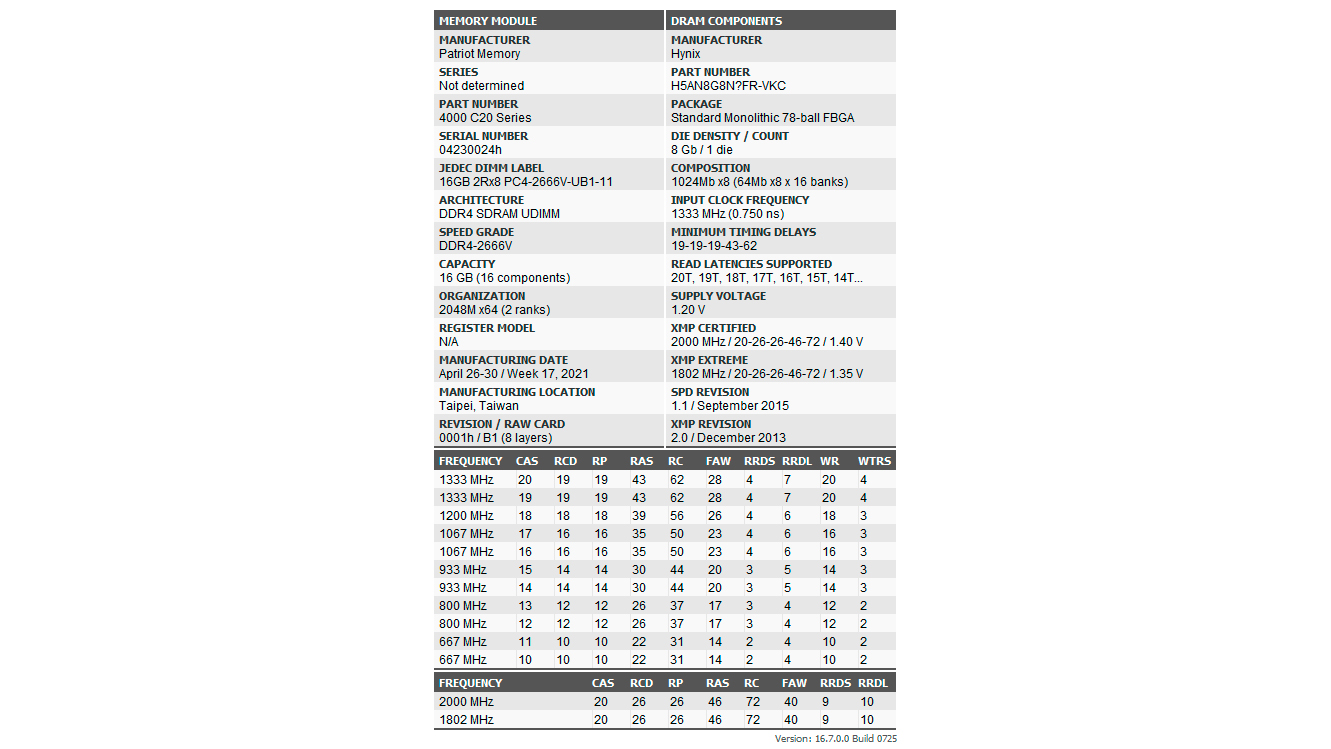Tom's Hardware Verdict
Patriot's Viper Elite II DDR4-4000 C20 would be a great memory kit if only its loose timings didn't hold it back.
Pros
- +
+ Average performance
- +
+ Aggressive design without RGB
- +
+ Short heat spreader
Cons
- -
Very sloppy timings
- -
Expensive
- -
Zero overclocking headroom
Why you can trust Tom's Hardware
Practically every piece of modern computer hardware has RGB lighting. The memory market, in particular, is filled with flashy memory kits, and it's to the point that it's getting ever more difficult to find normal kits. Luckily for the 'purists,' Patriot recently launched its Viper Elite II series, the follow-up to the brand's Viper Elite lineup. The Viper Elite II not only aims at securing a spot on our list of the best RAM, but the series also looks to capture consumers that still value a good old-fashioned design that's devoid of all the glitz.
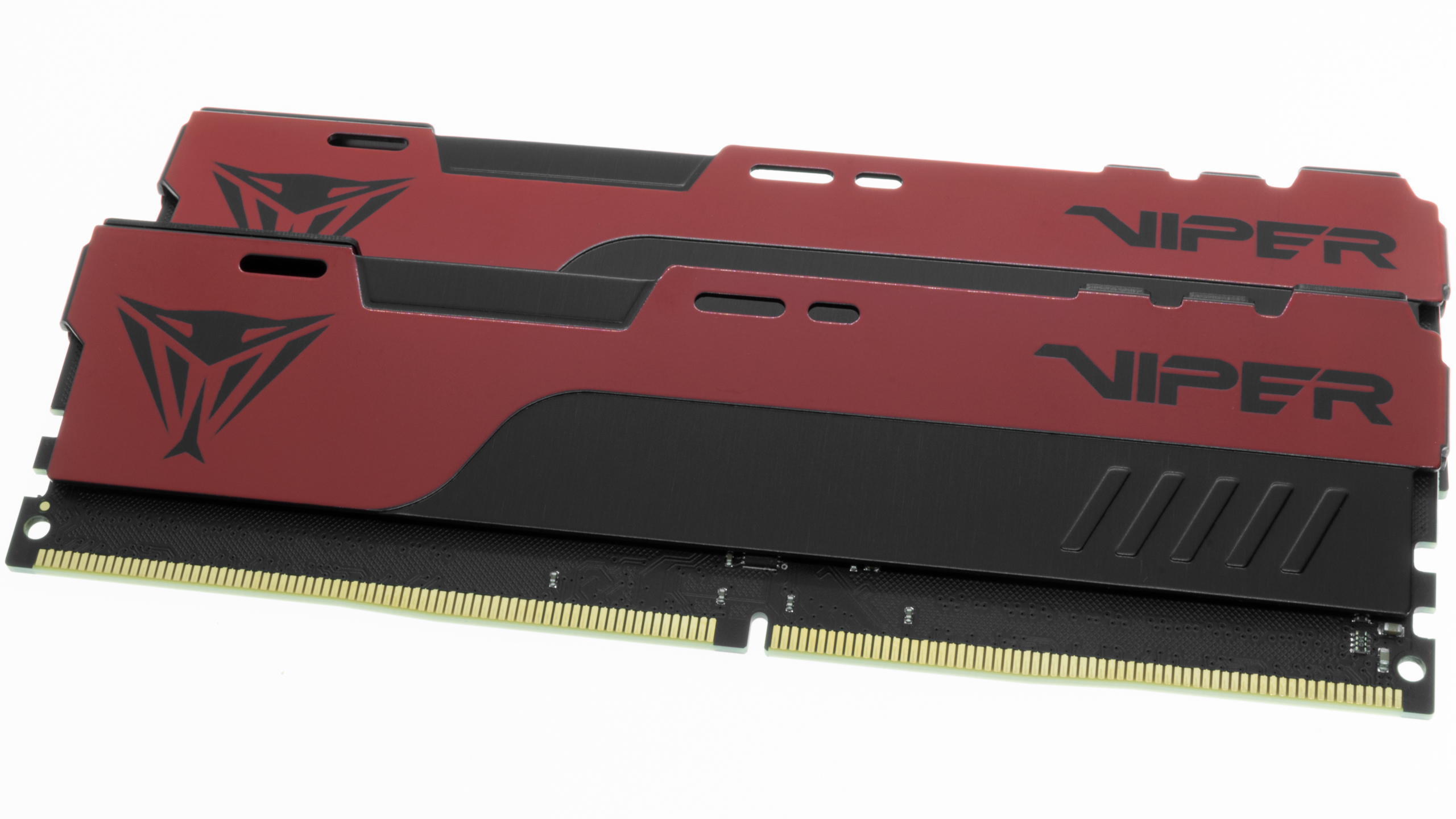
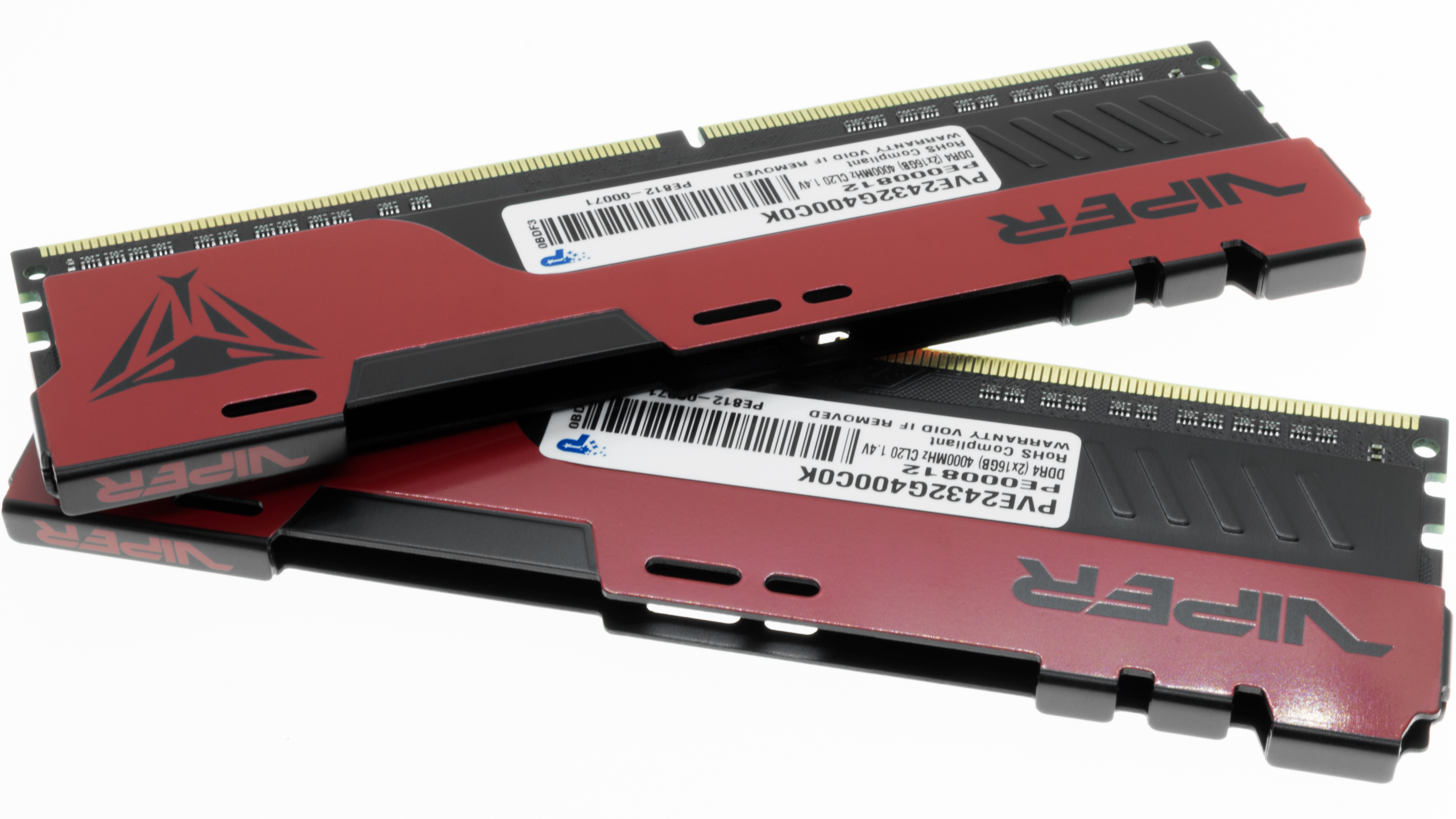
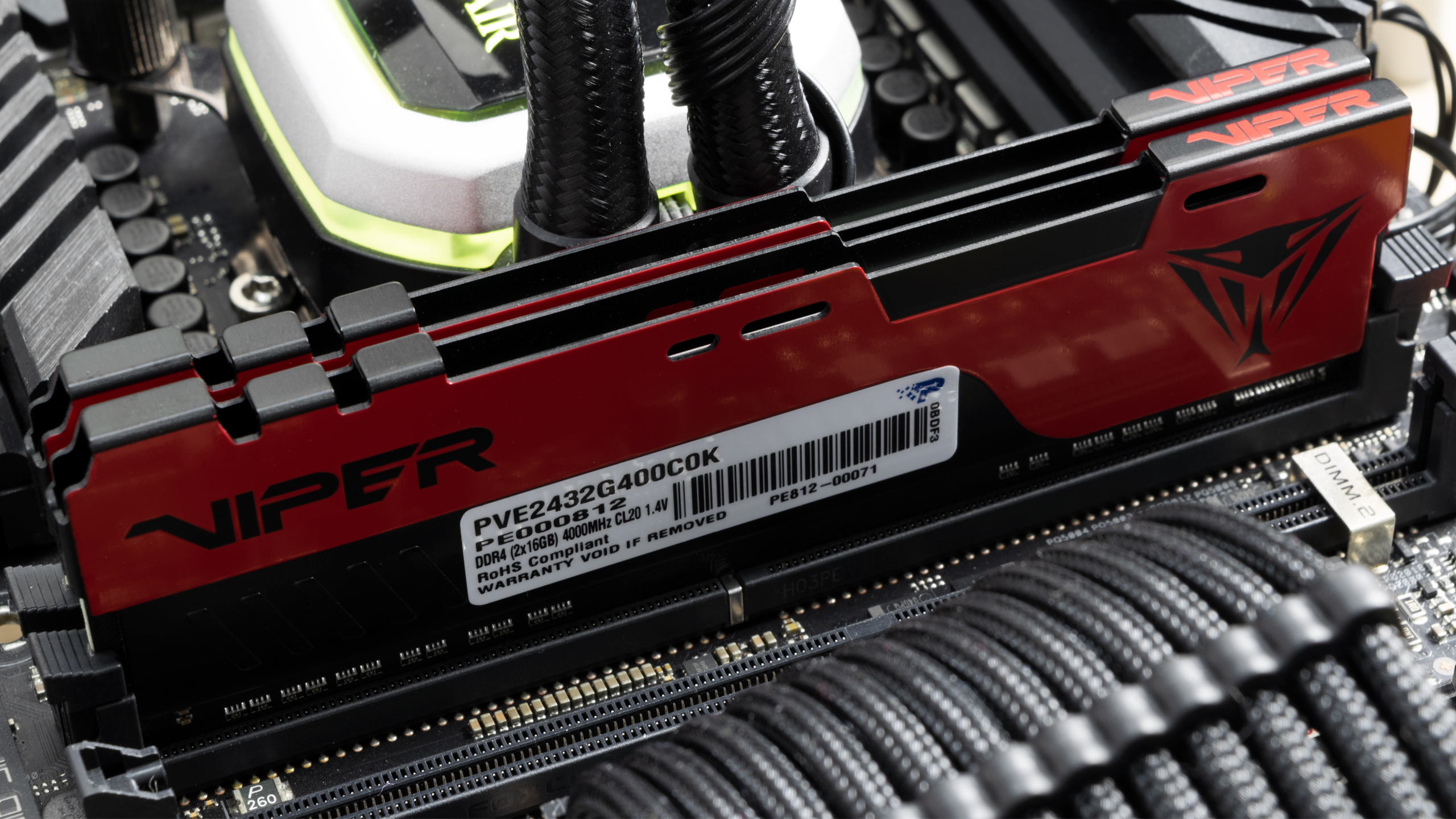
The Viper Elite II memory module sports an aluminum heat spreader with a black and red theme. The heat spreader feels a bit light in the hand, but it should perform its duties without hiccups. The memory modules are 35mm (1.38 inches) tall, so they're only a tad taller than the standard memory modules that don't come with a heat spreader.
There's zero RGB lighting on the Viper Elite II, so it relies on the aggressive design to stand out from the competition. Patriot implanted the Viper logos on both sides of the heat spreader as well as on top of the heat spreader.
The Viper Elite II features a black, eight-layer PCB. Each memory module is 16GB and has a dual-rank design. The memory modules use Hynix integrated circuits (ICs), although Thaiphoon Burner failed to pinpoint the exact model. The ICs read out as H5AN8G8N?FR-VKC.
The Viper Elite II's default data rate and timings are DDR4-2666 and 19-19-19-43, respectively. With support for XMP 2.0, the Viper Elite offers two different profiles. The main profile corresponds to DDR4-4000 with 20-26-26-46 timings, while the secondary profile is for DDR4-3600 with identical timings. The former pulls 1.4V, while the latter utilizes 1.35V. For more on timings and frequency considerations, see our PC Memory 101 feature, as well as our How to Shop for RAM story.
Comparison Hardware
| Memory Kit | Part Number | Capacity | Data Rate | Primary Timings | Voltage | Warranty |
|---|---|---|---|---|---|---|
| GeIL Orion AMD Edition | GAOR432GB4266C18ADC | 2 x 16GB | DDR4-4266 (XMP) | 18-24-24-44 (2T) | 1.45 Volts | Lifetime |
| G.Skill Trident Z Royal | F4-4000C17D-32GTRGB | 2 x 16GB | DDR4-4000 (XMP) | 17-18-18-38 (2T) | 1.40 Volts | Lifetime |
| Crucial Ballistix Max RGB | BLM2K16G40C18U4BL | 2 x 16GB | DDR4-4000 (XMP) | 18-19-19-39 (2T) | 1.35 Volts | Lifetime |
| Patriot Viper Elite II | PVE2432G400C0K | 2 x 16GB | DDR4-4000 (XMP) | 20-26-26-46 (2T) | 1.40 Volts | Lifetime |
| G.Skill Trident Z Neo | F4-3600C16D-32GTZN | 2 x 16GB | DDR4-3600 (XMP) | 16-16-16-36 (2T) | 1.35 Volts | Lifetime |
| Mushkin Redline Lumina | MLA4C360GKKP16GX2 | 2 x 16GB | DDR4-3600 (XMP) | 16-19-19-39 (2T) | 1.40 volts | Lifetime |
| Klevv Bolt XR | KD4AGU880-36A180C | 2 x 16GB | DDR4-3600 (XMP) | 18-22-22-42 (2T) | 1.35 Volts | Lifetime |
| Silicon Power Xpower Zenith RGB | SP032GXLZU360BDD | 2 x 16GB | DDR4-3600 (XMP) | 18-22-22-42 (2T) | 1.35 Volts | Lifetime |
| Lexar Hades | LD4BU016G-R3600UDLH | 2 x 16GB | DDR4-3600 (XMP) | 18-22-22-42 (2T) | 1.35 Volts | Lifetime |
| Patriot Viper Steel RGB | PVSR432G360C0K | 2 x 16GB | DDR4-3600 (XMP) | 20-26-26-46 (2T) | 1.35 Volts | Lifetime |
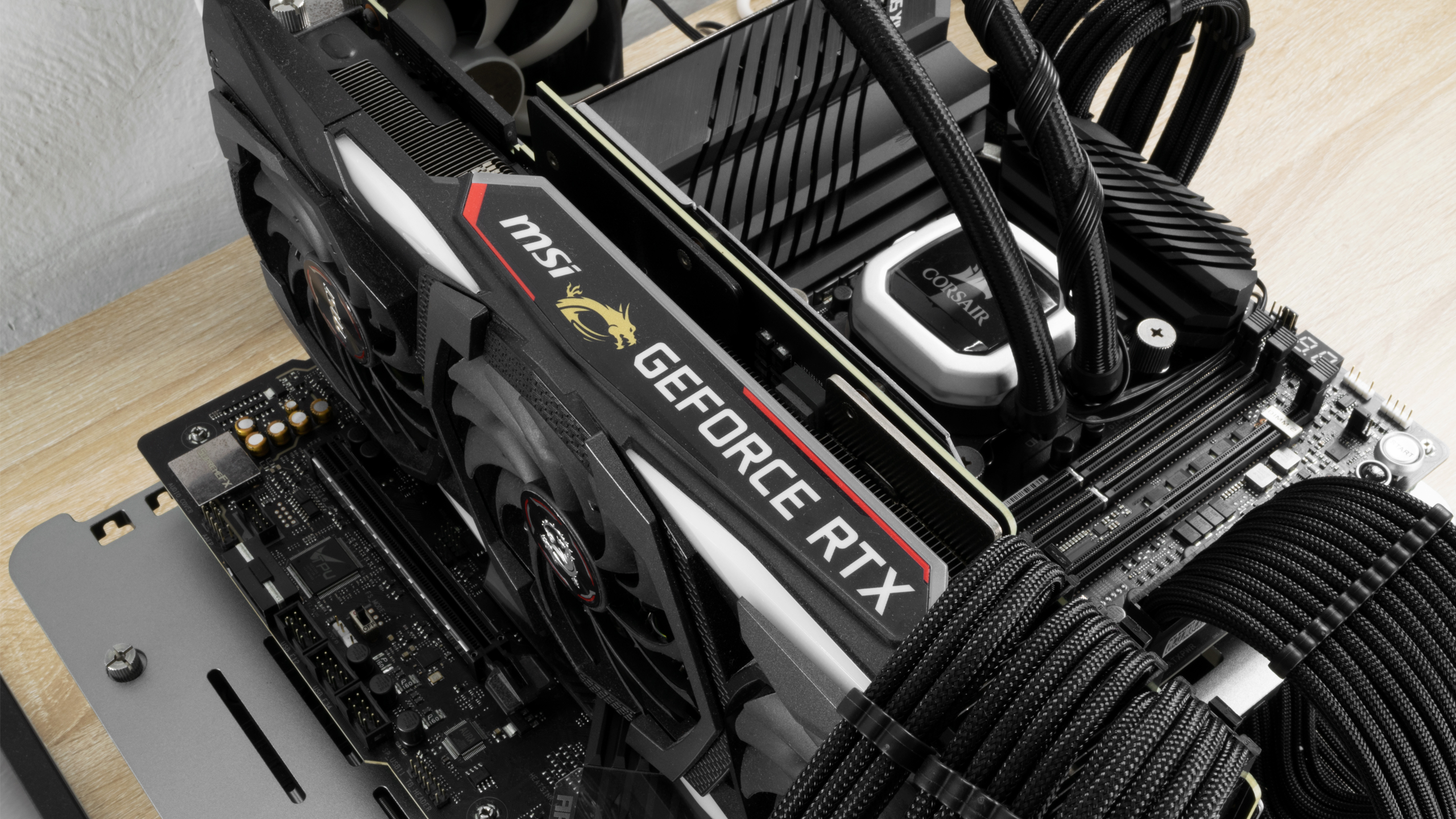
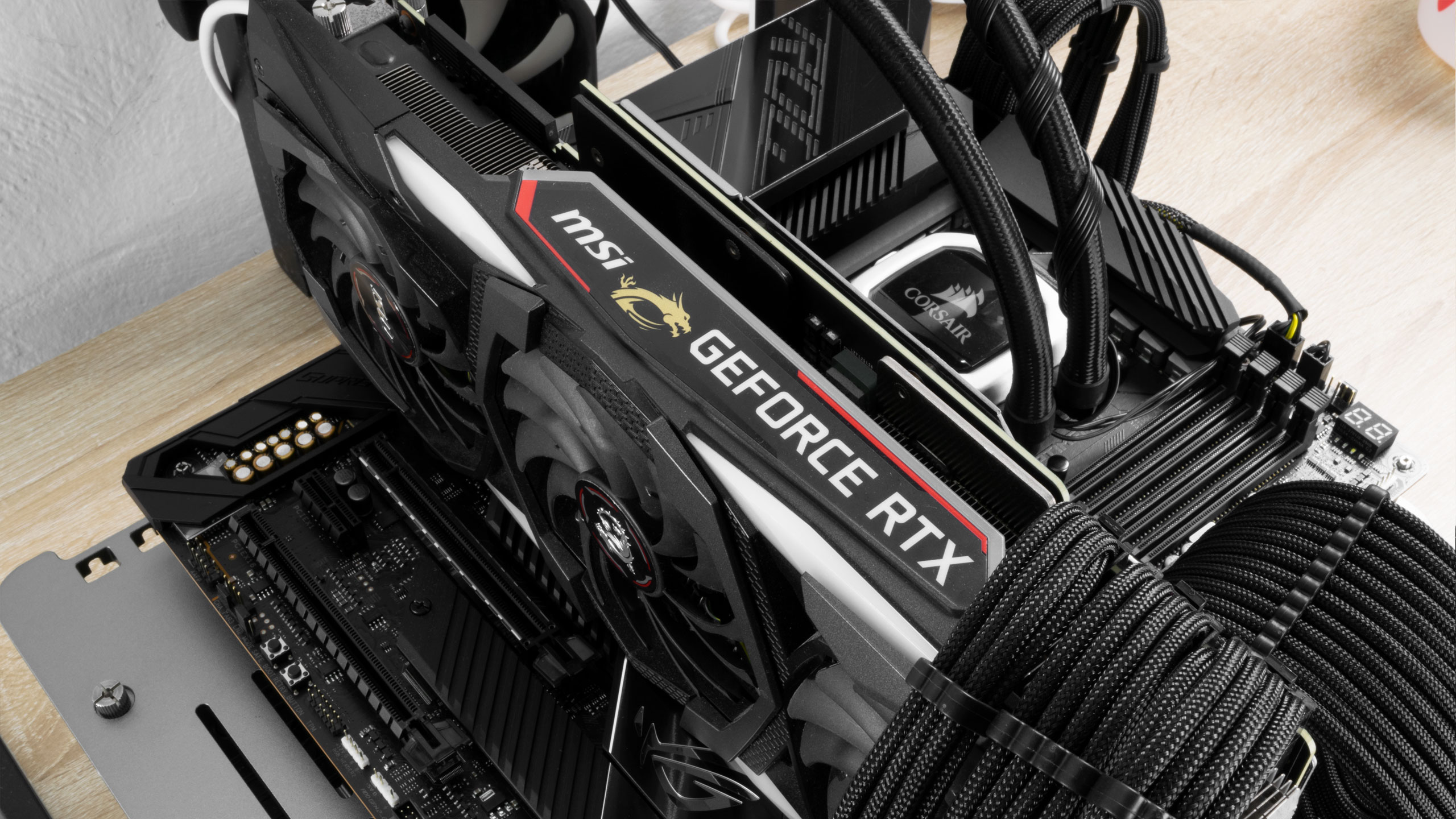
The Intel system employs the Intel Core i9-10900K and Asus ROG Maximus XII Apex, which operates on the 0901 firmware. On the opposite side, the AMD system consists of the AMD Ryzen 9 5900X and the Asus ROG Crosshair VIII Dark Hero. The latter is on the 3501 firmware. Meanwhile, the MSI GeForce RTX 2080 Ti Gaming Trio is in charge of the gaming RAM benchmarks,
| Header Cell - Column 0 | Intel System | AMD System |
|---|---|---|
| Processor | Intel Core i9-10900K | AMD Ryzen 9 5900X |
| Motherboard | Asus ROG Maximus XII Apex | Asus ROG Crosshair VIII Dark Hero |
| Graphics Card | MSI GeForce RTX 2080 Ti Gaming X Trio | MSI GeForce RTX 2080 Ti Gaming X Trio |
| Storage | Crucial MX500 500GB, 2TB | Crucial MX500 500GB, 2TB |
| Cooling | Corsair Hydro H115i Pro | Corsair Hydro H115i Pro |
| Power Supply | Corsair RM650x 650W | Corsair RM650x 650W |
| Case | Streacom BC1 | Streacom BC1 |
Intel Performance
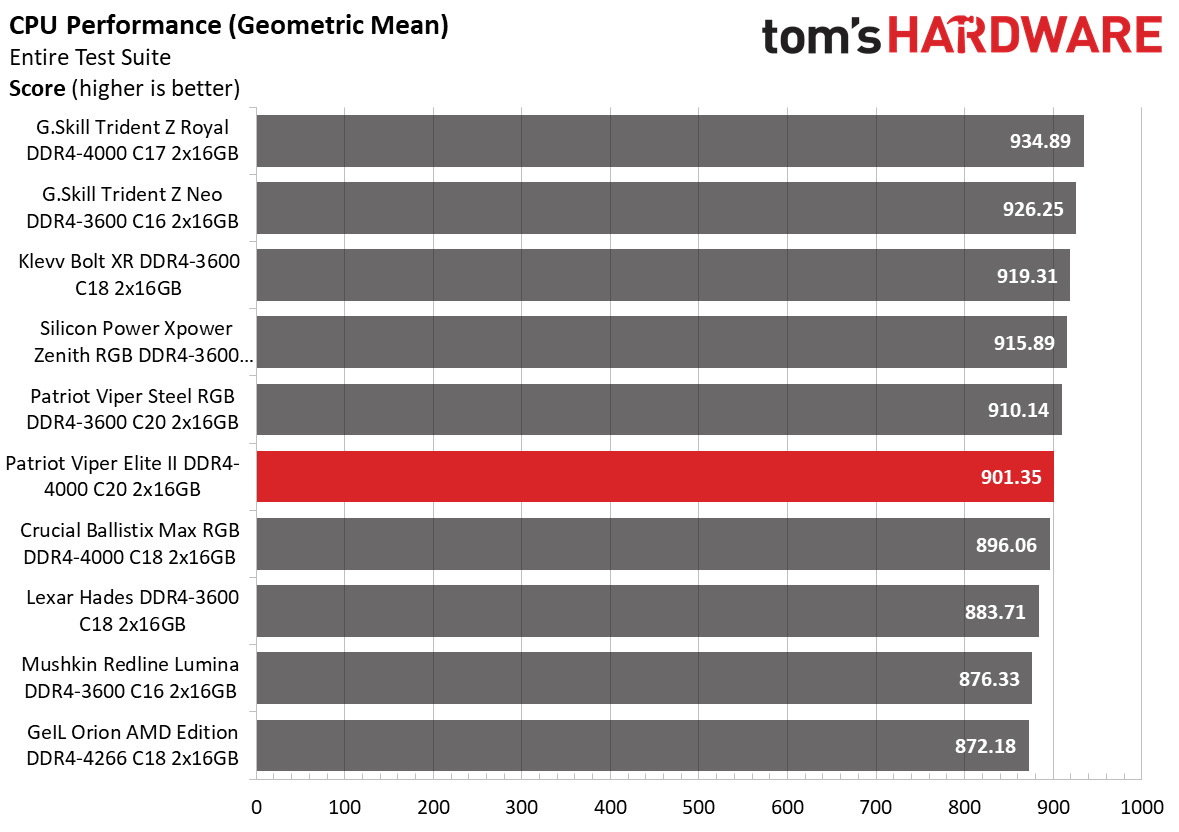
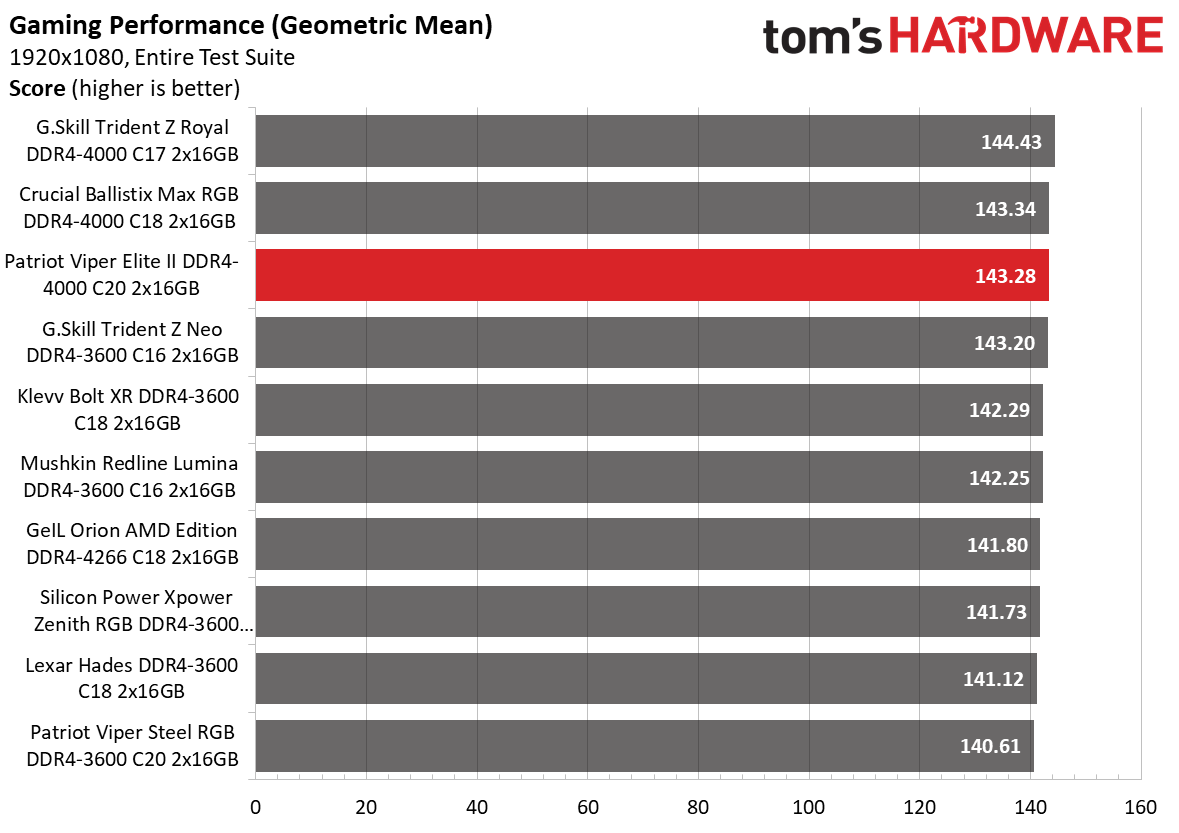
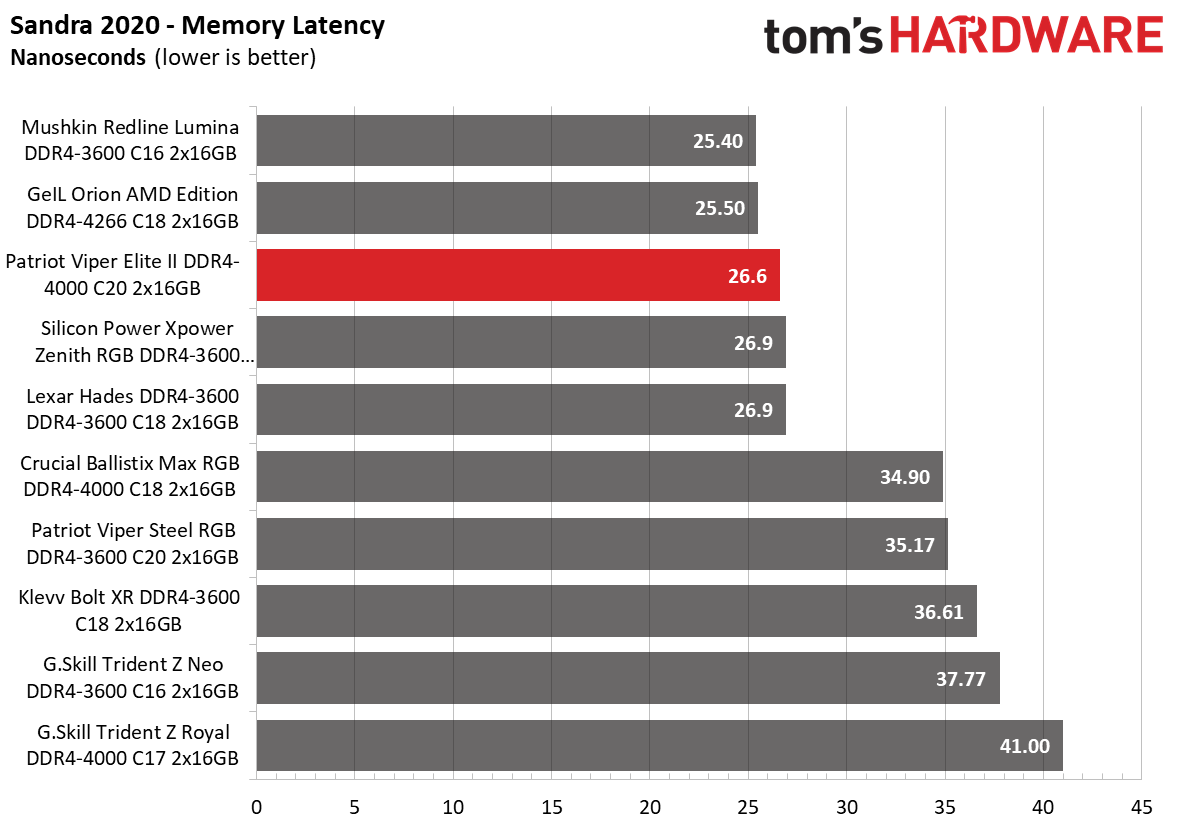
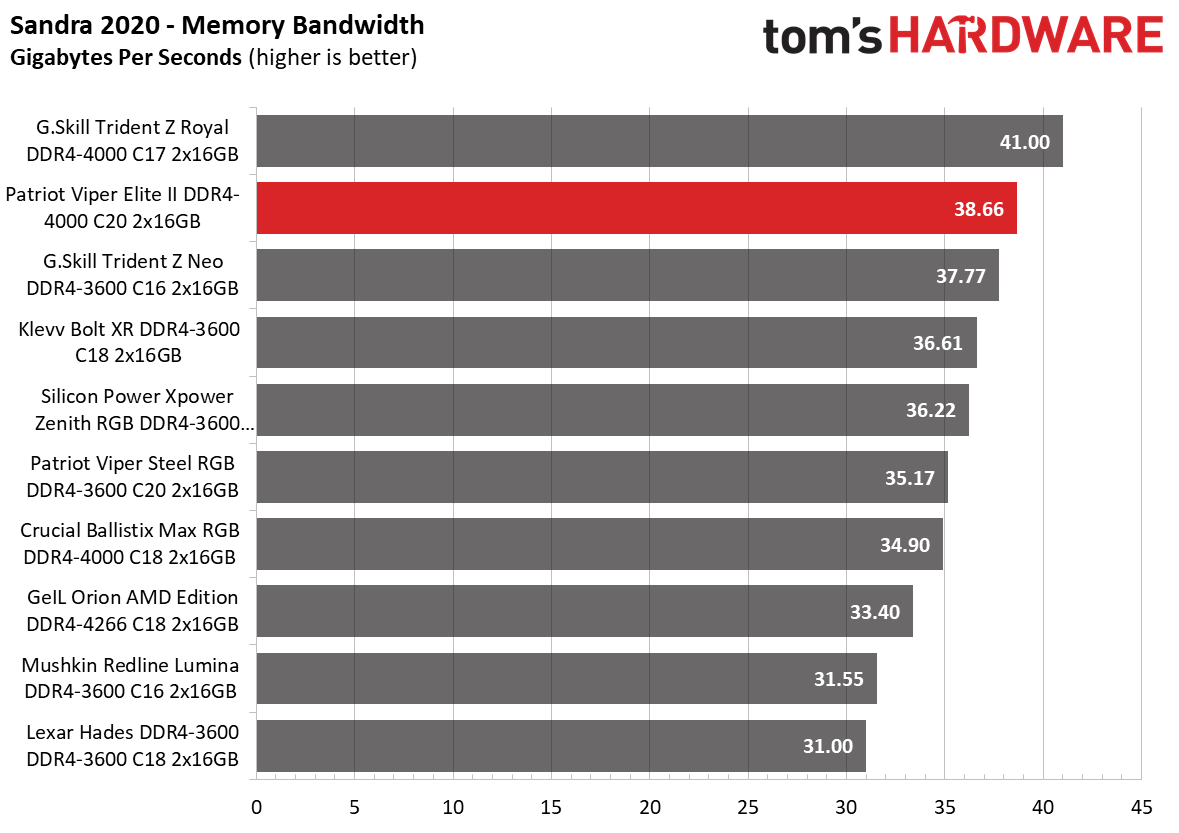
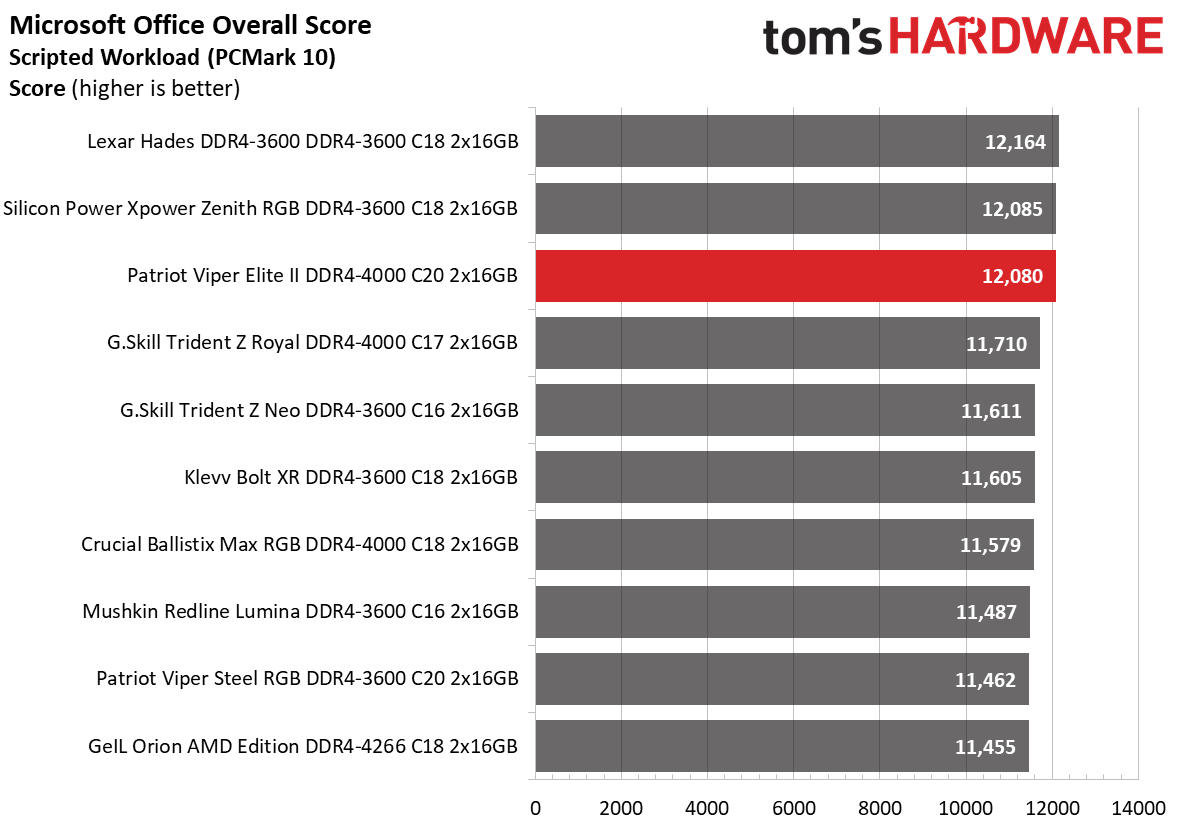
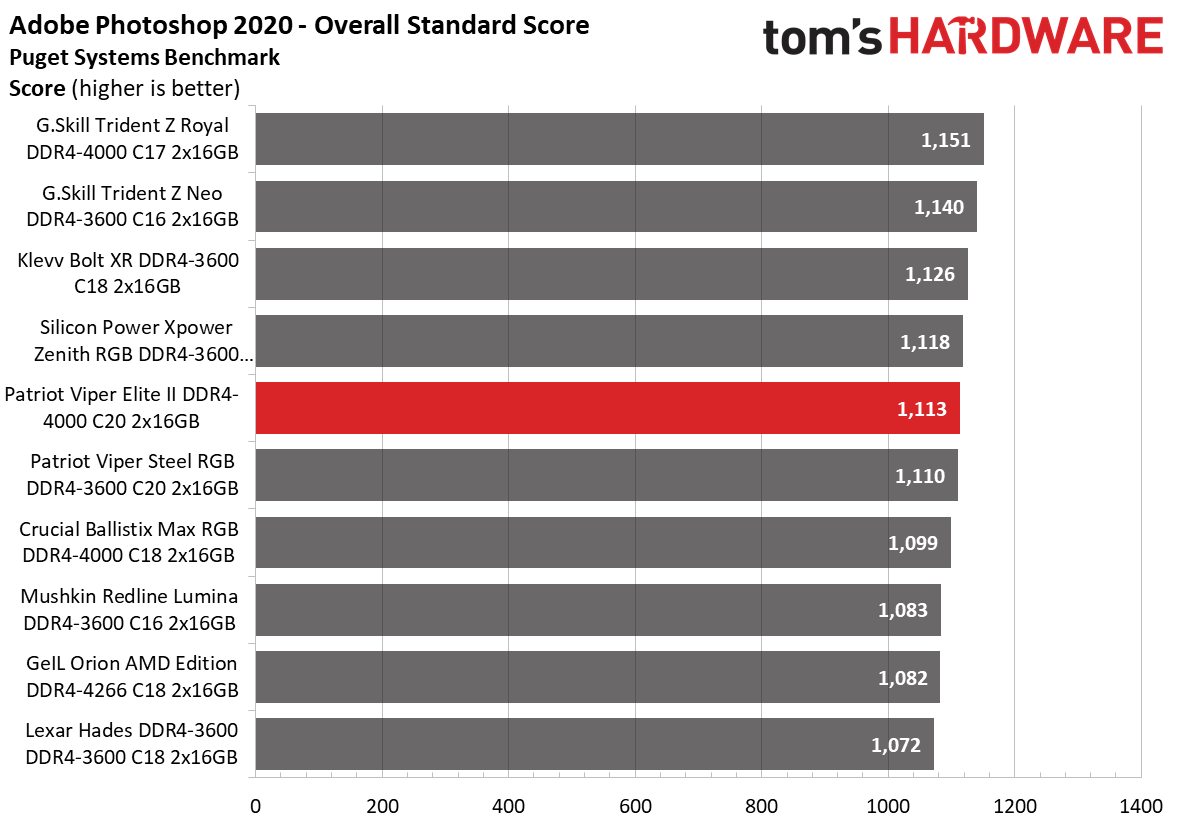
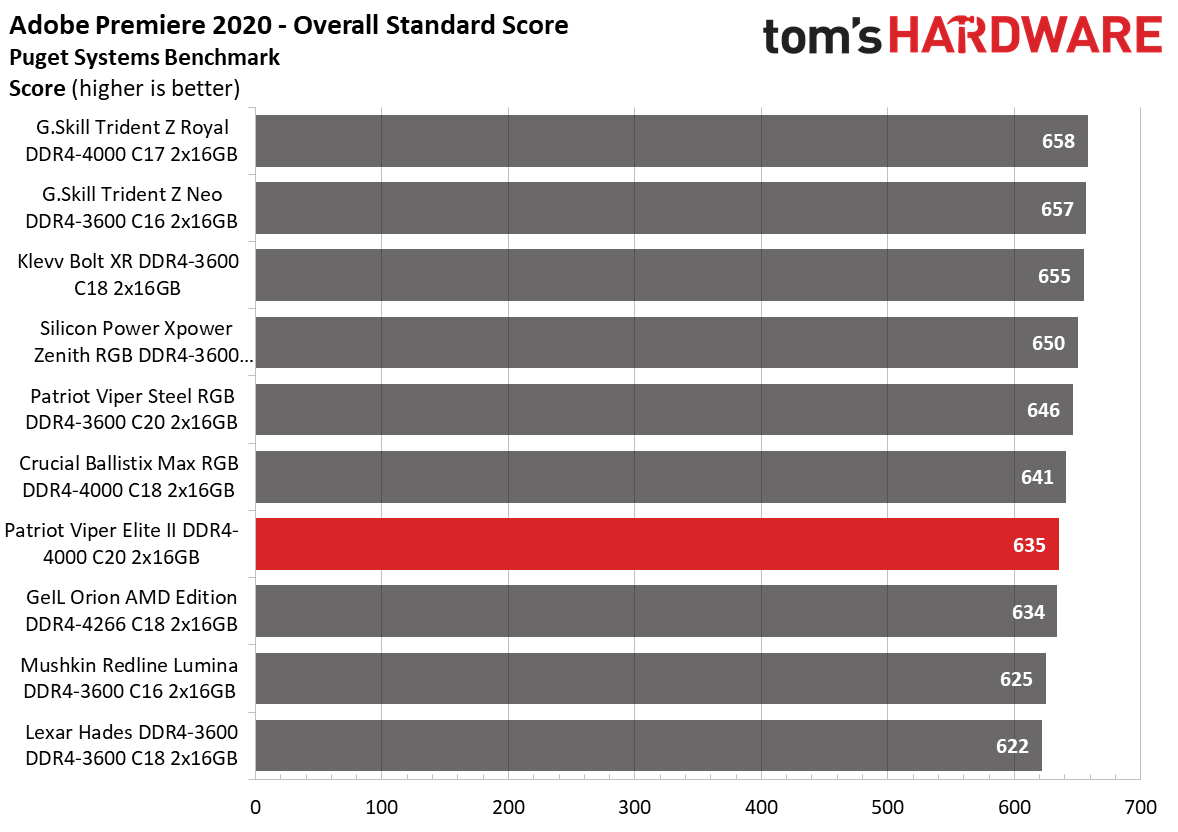
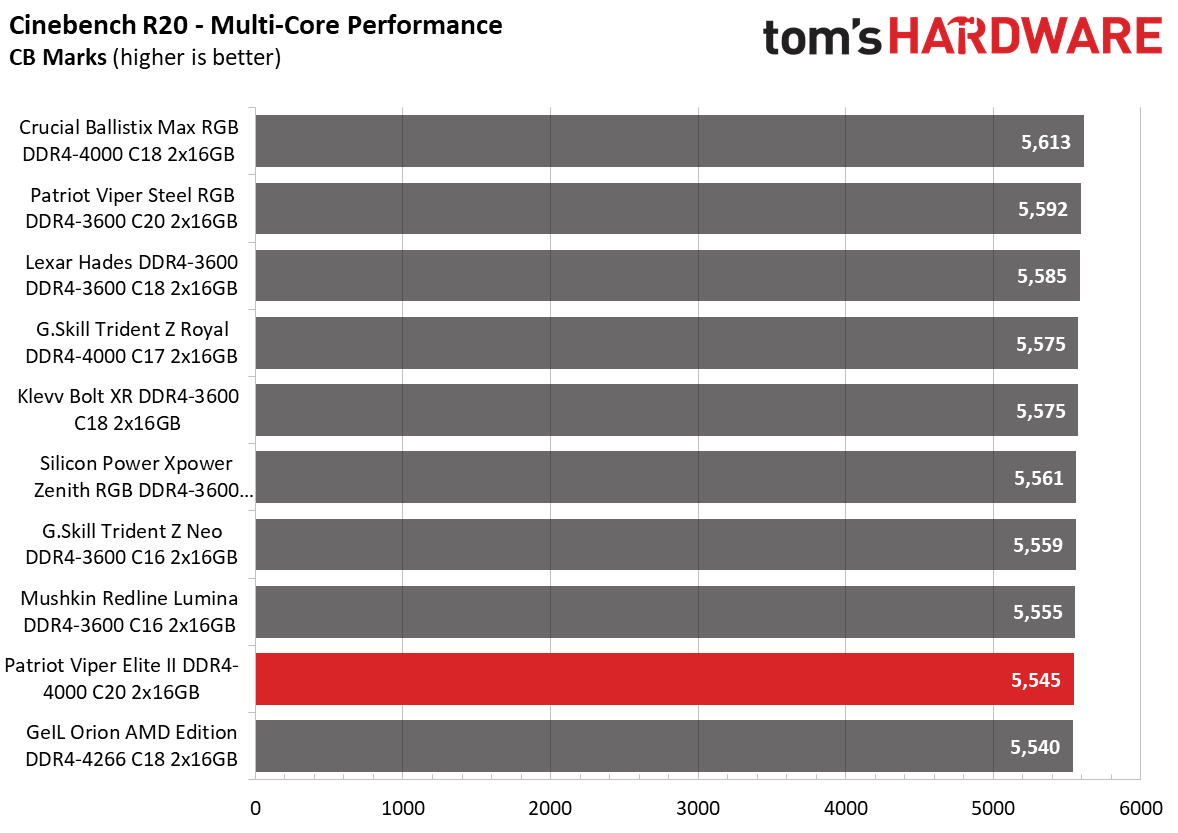
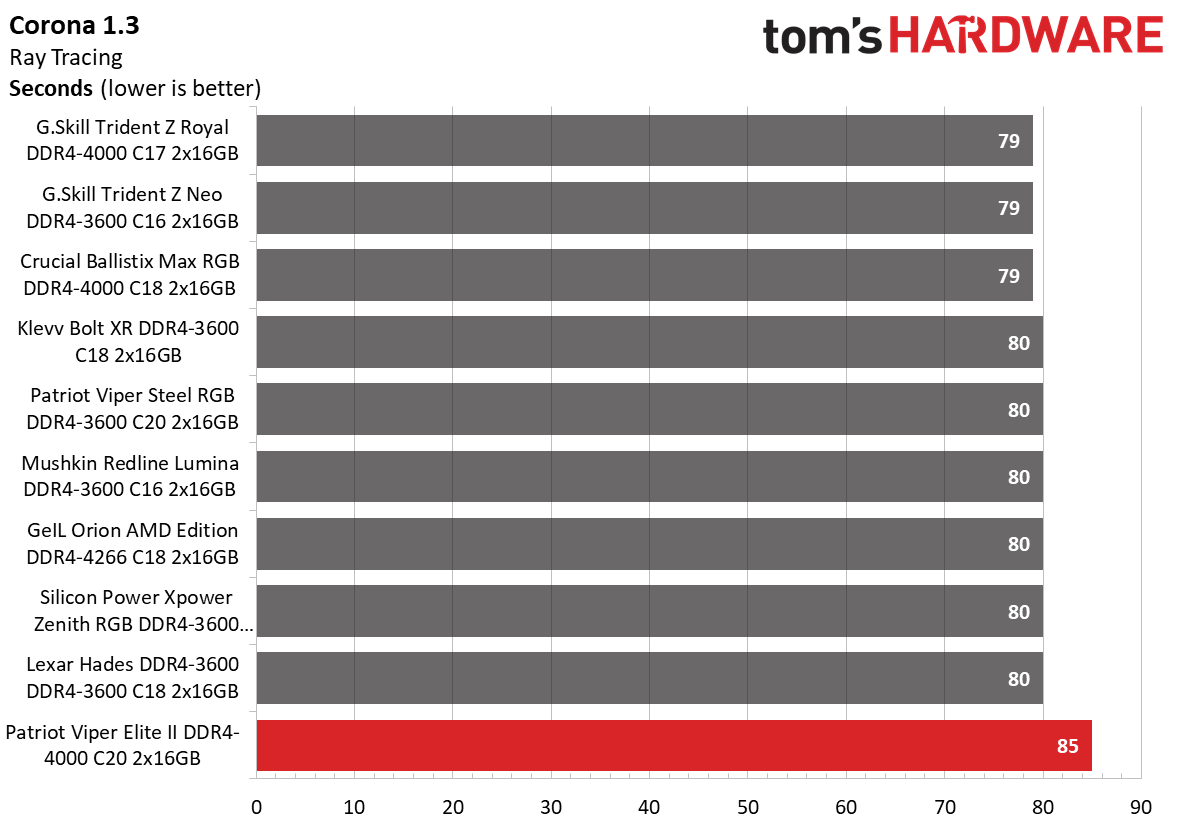
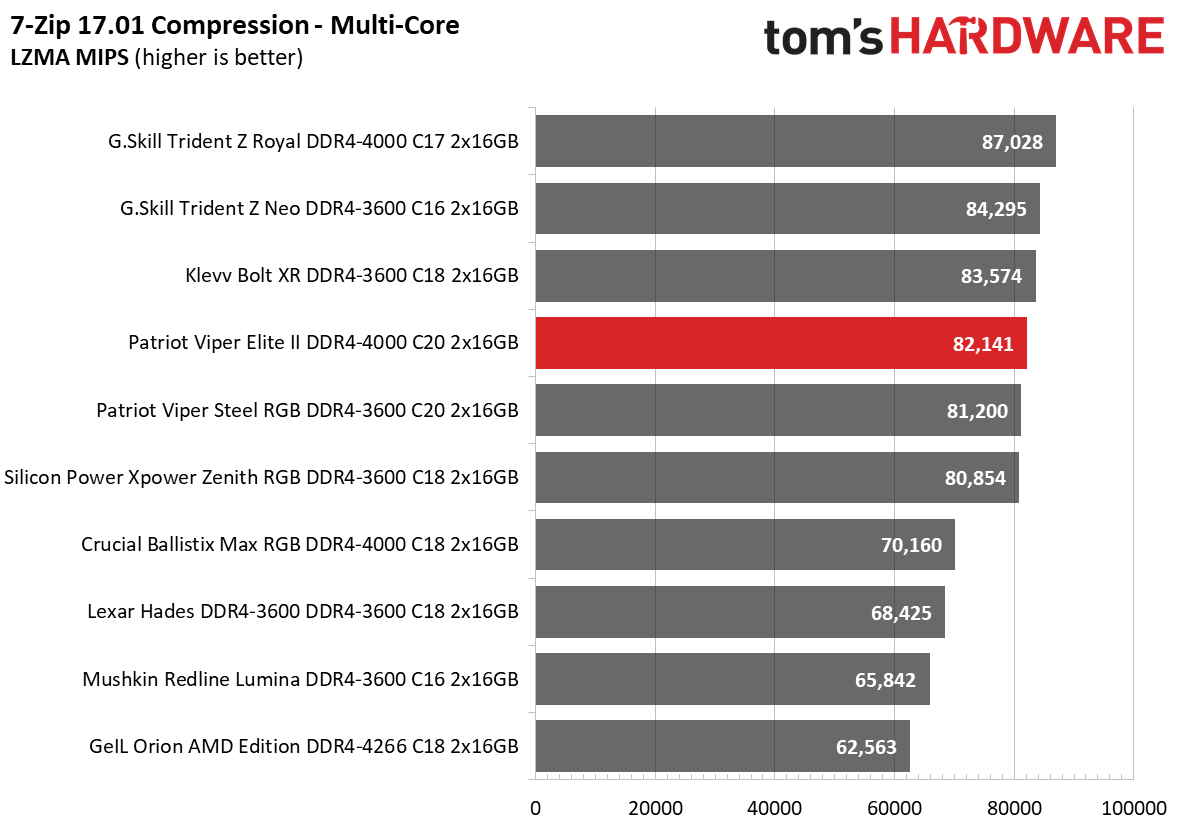
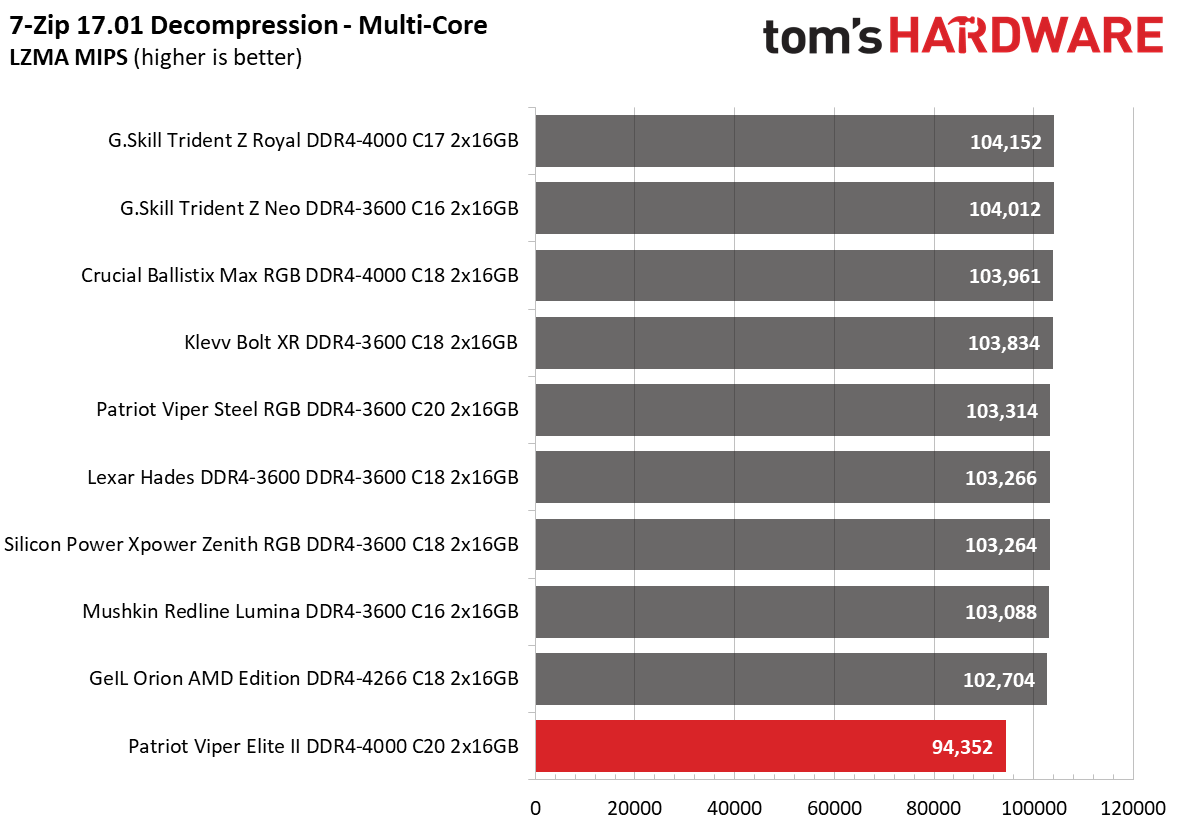
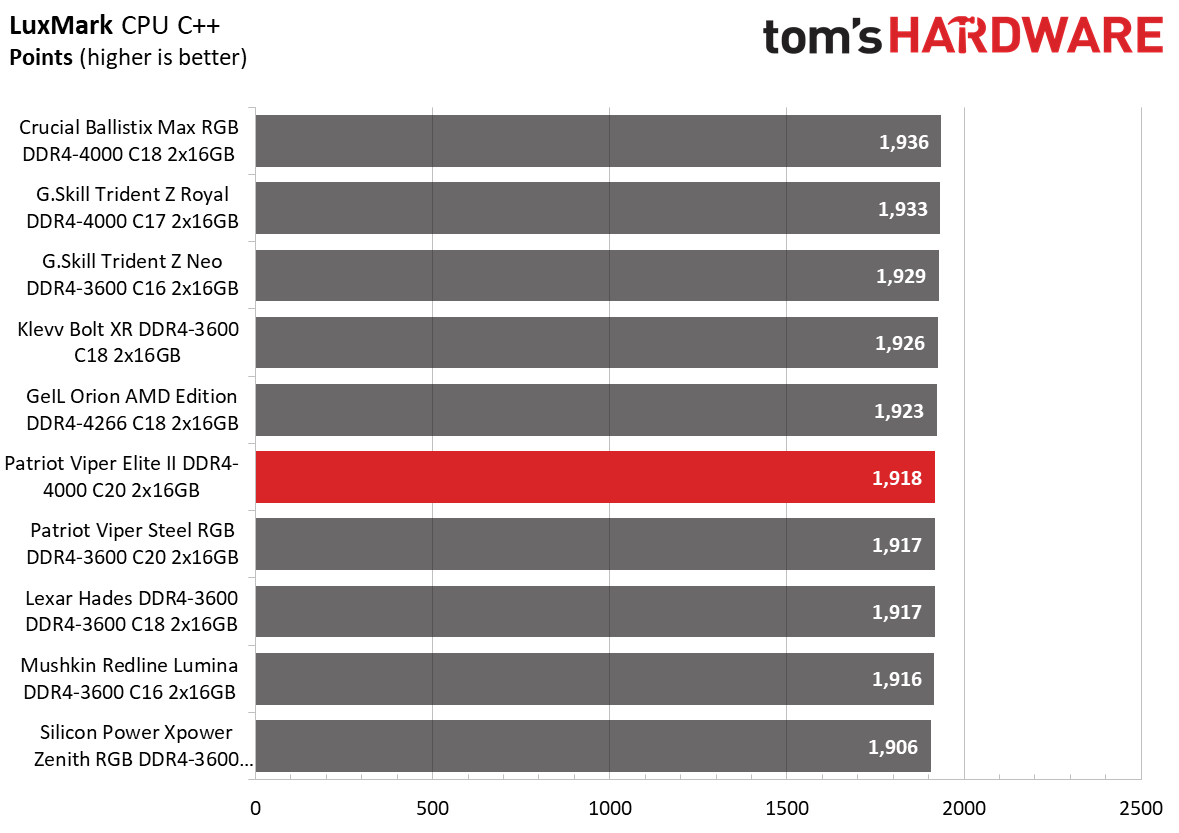
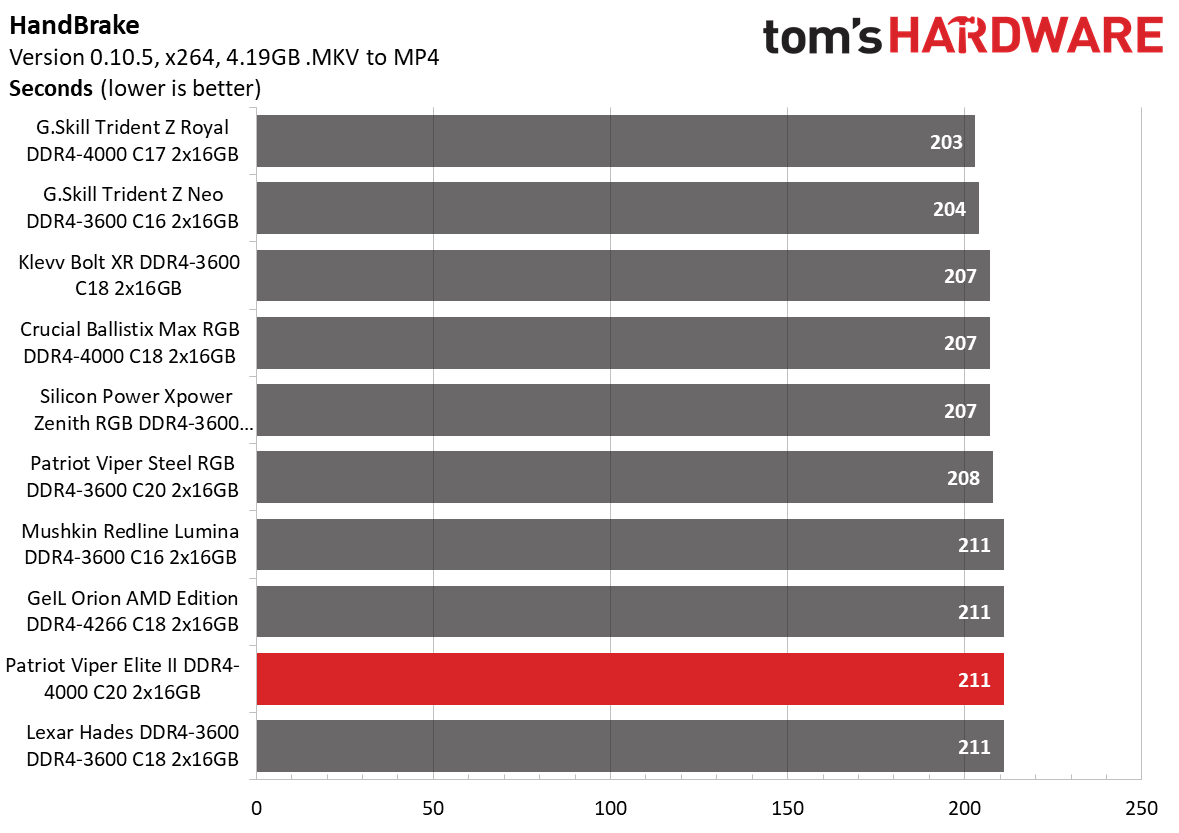
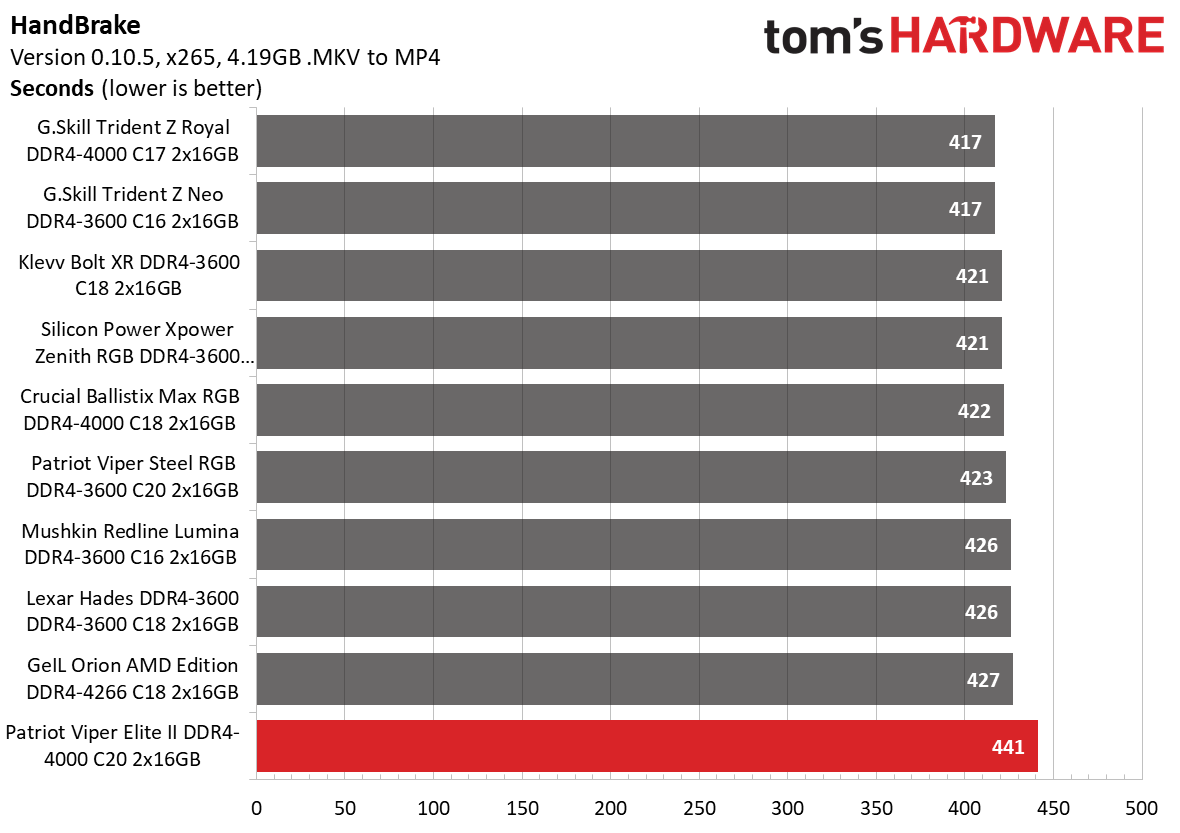
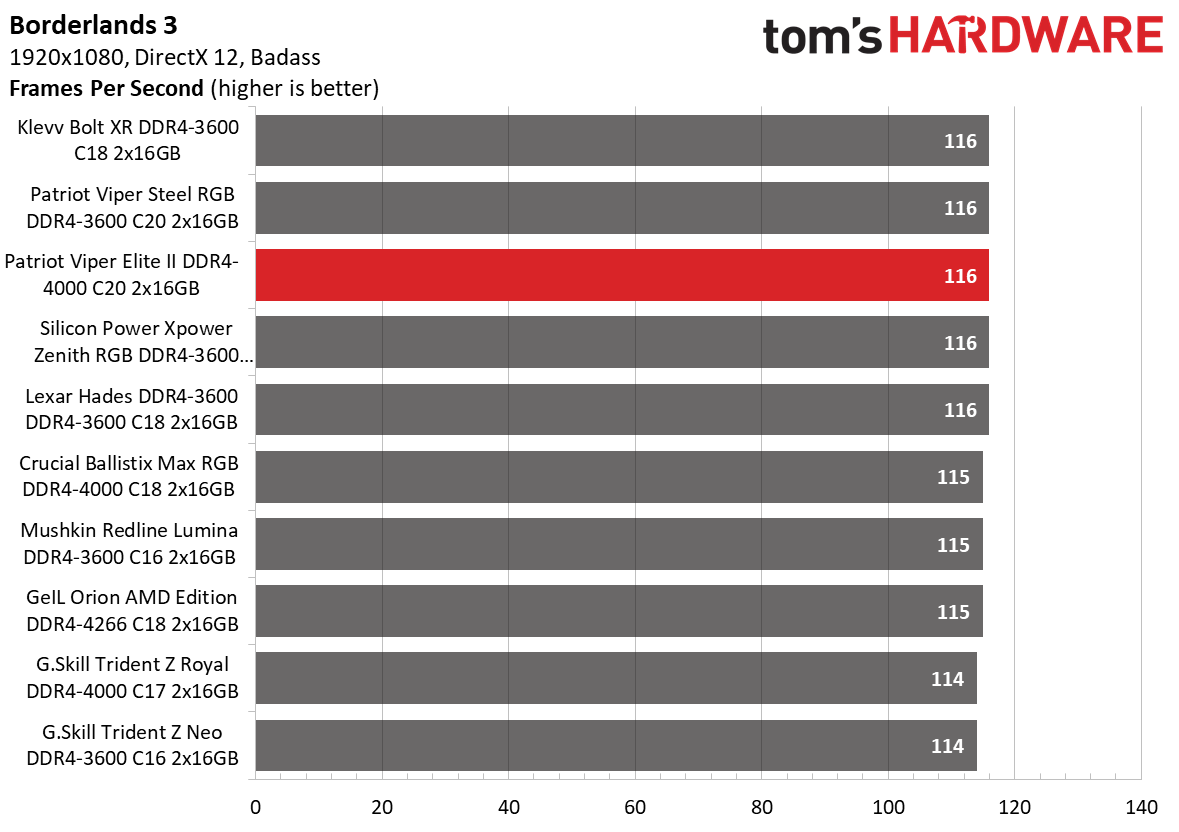
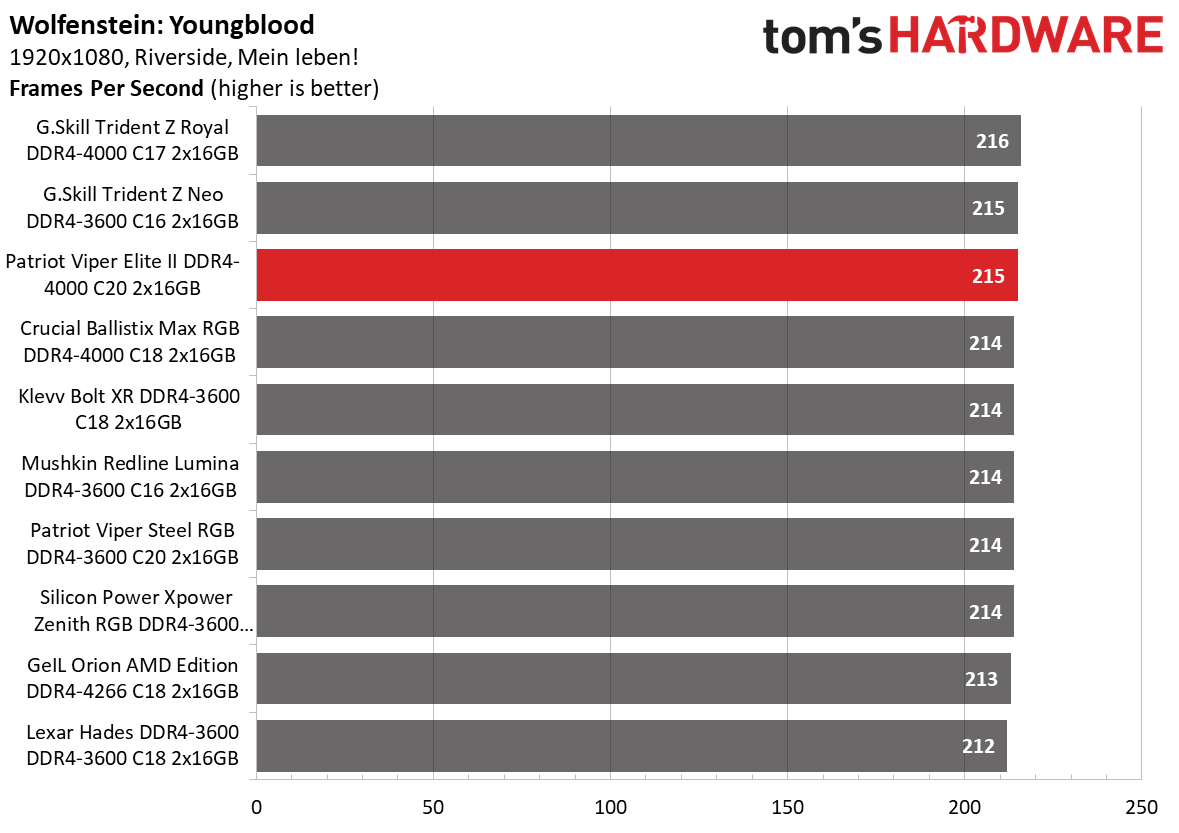
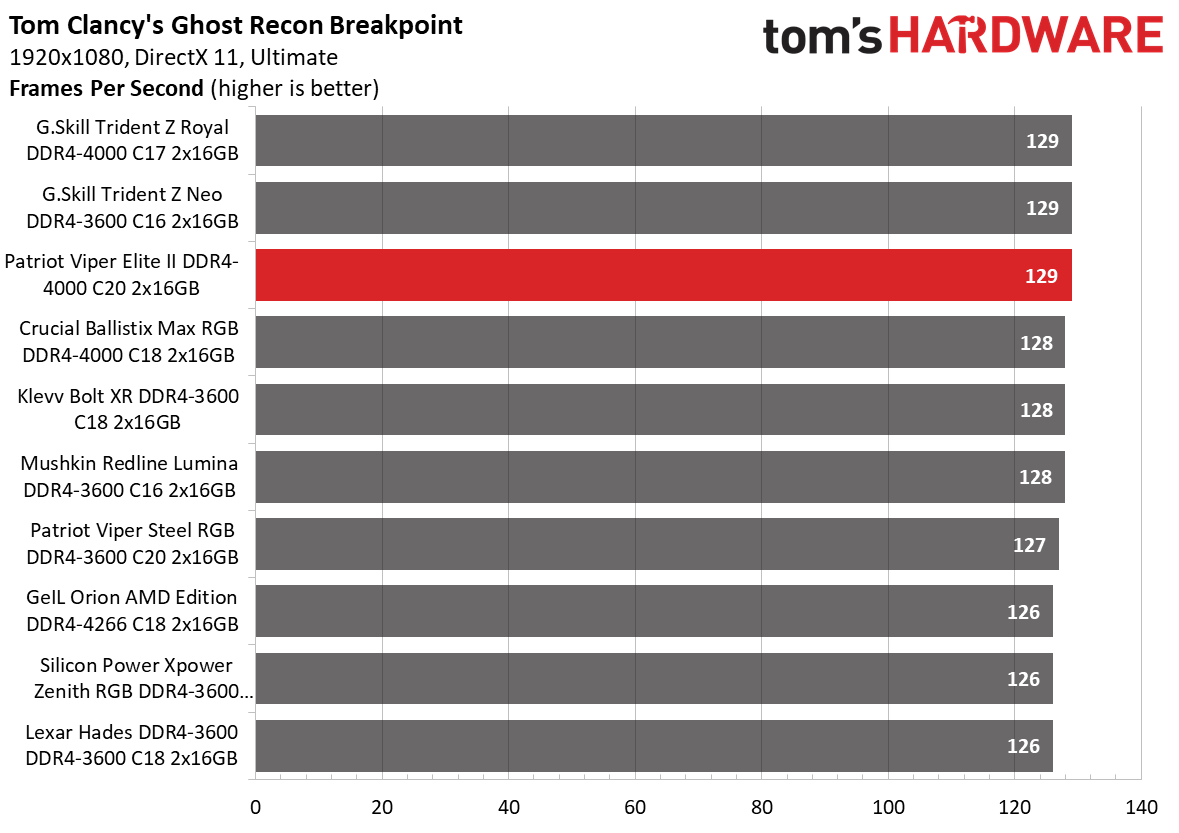
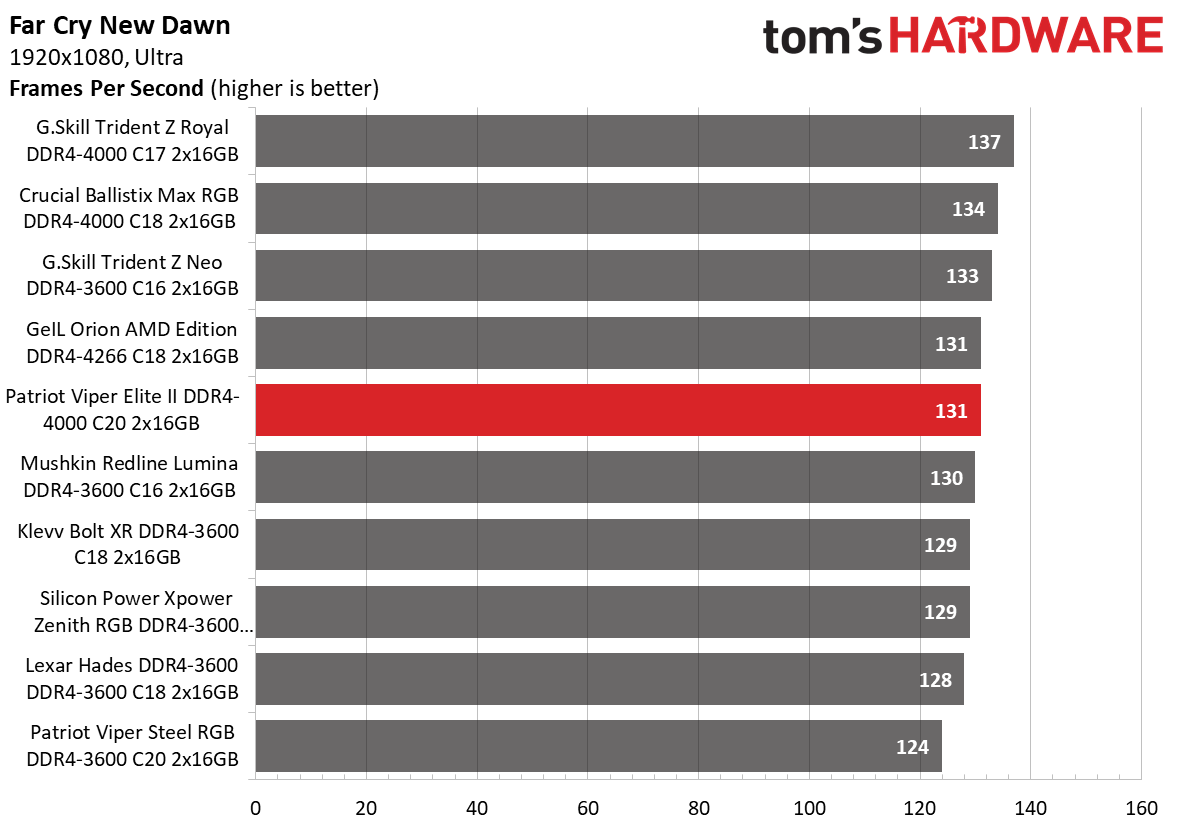
The Viper Elite II found itself right in the middle of the pack in our application performance chart. However, the memory kit ranked third in our gaming performance chart. It stood out in the Sandra 2020 memory bandwidth test, where it almost caught the Trident Z Royal DDR4-4000 C17.
Get Tom's Hardware's best news and in-depth reviews, straight to your inbox.
AMD Performance
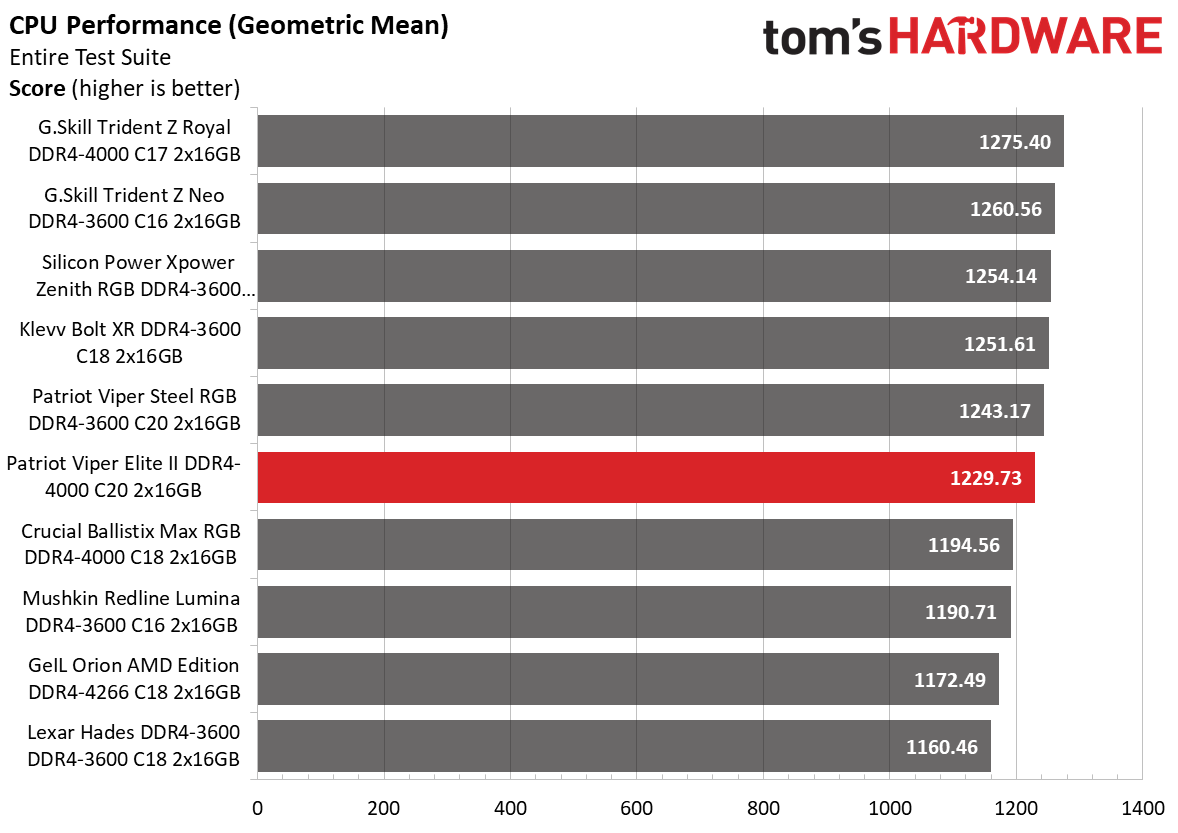
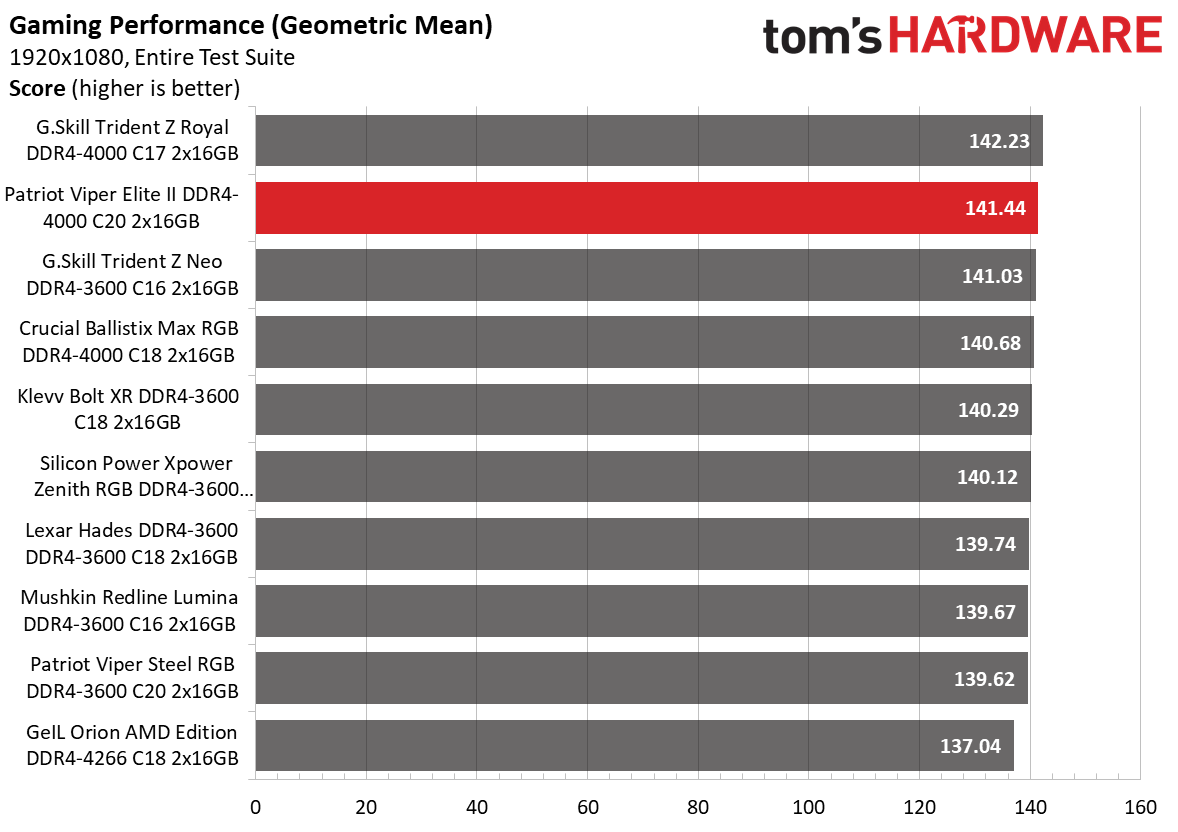
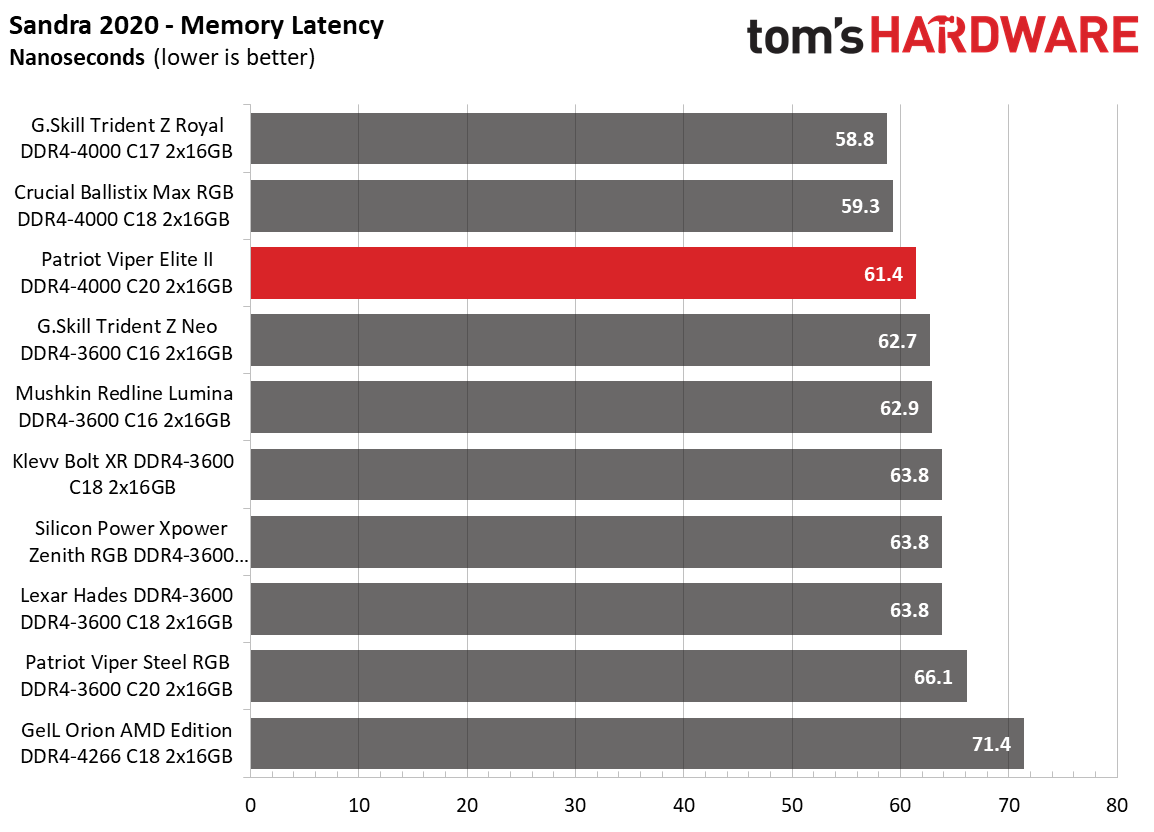
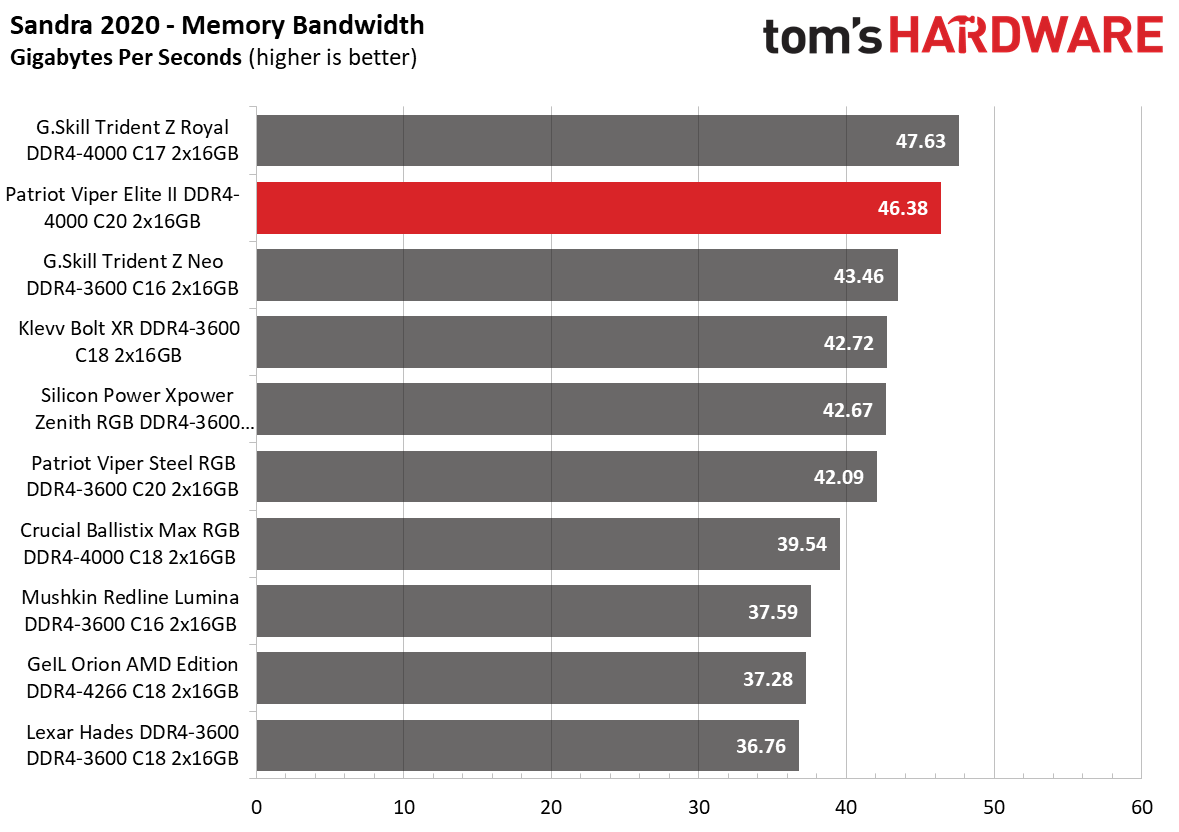
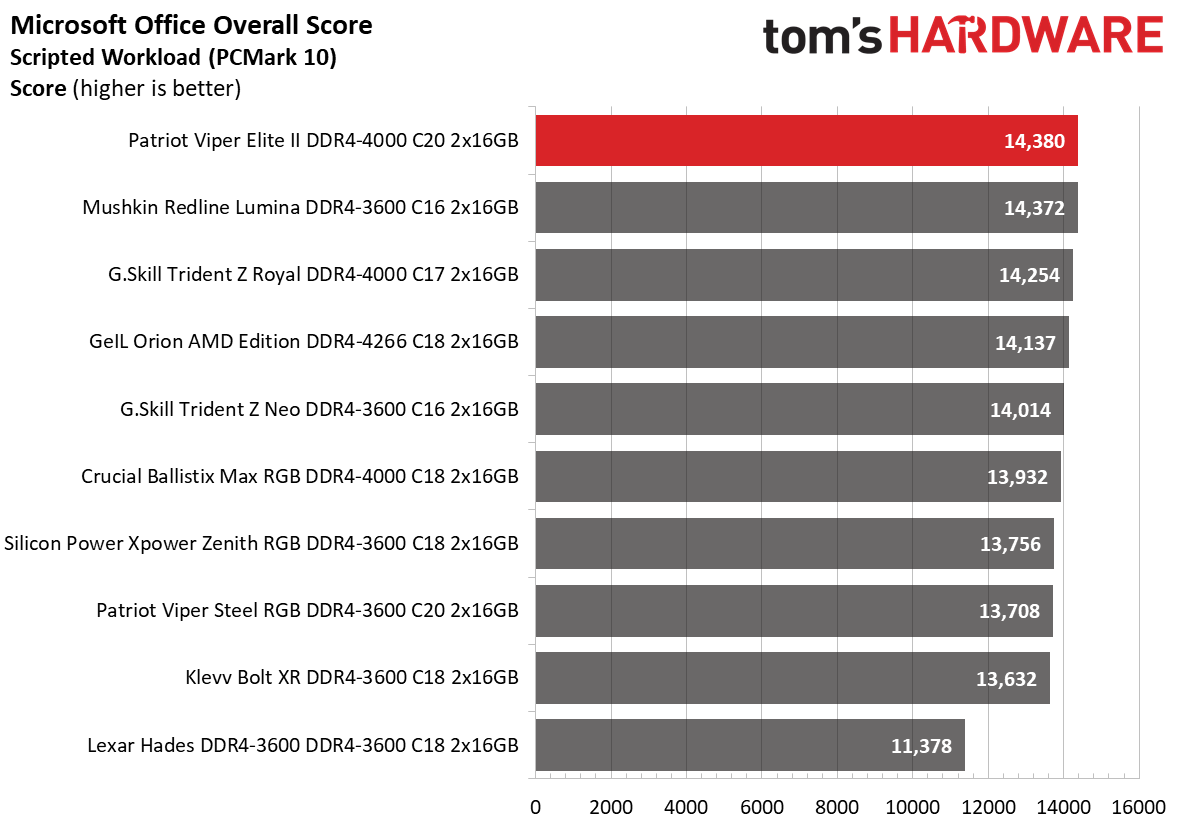
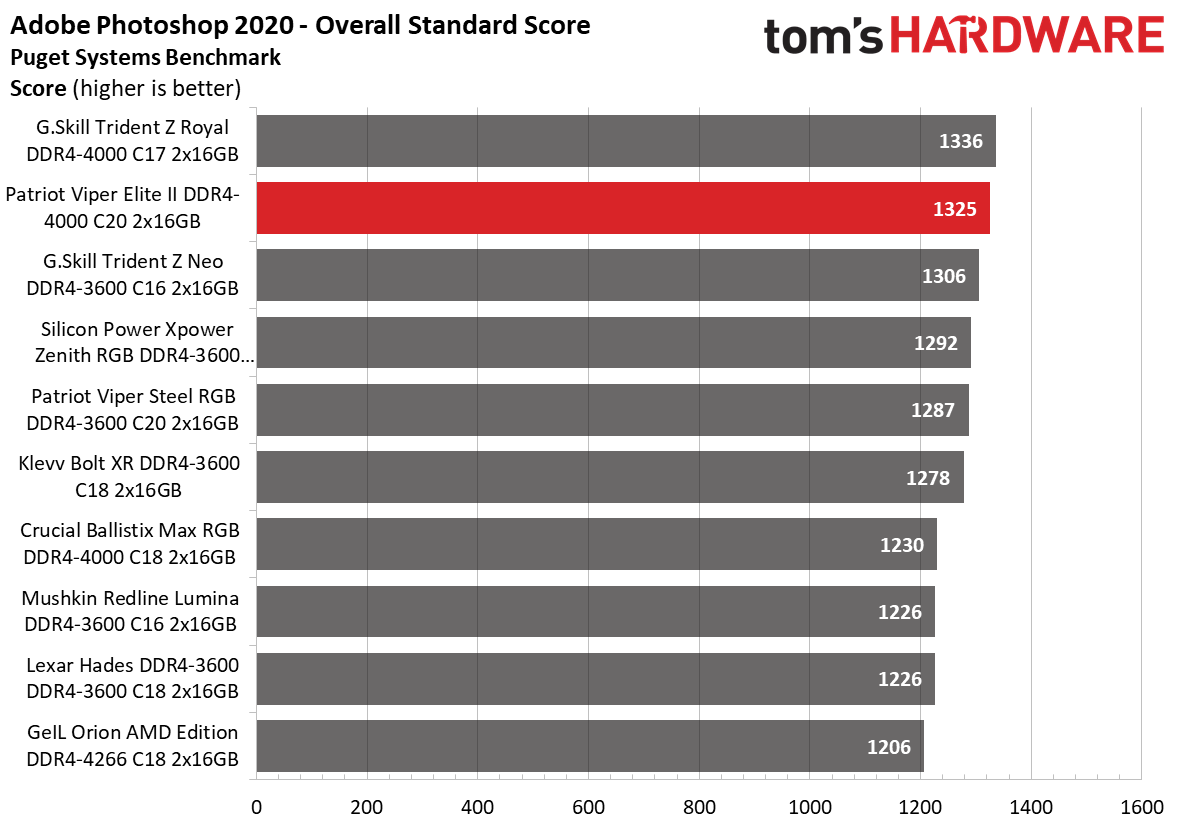
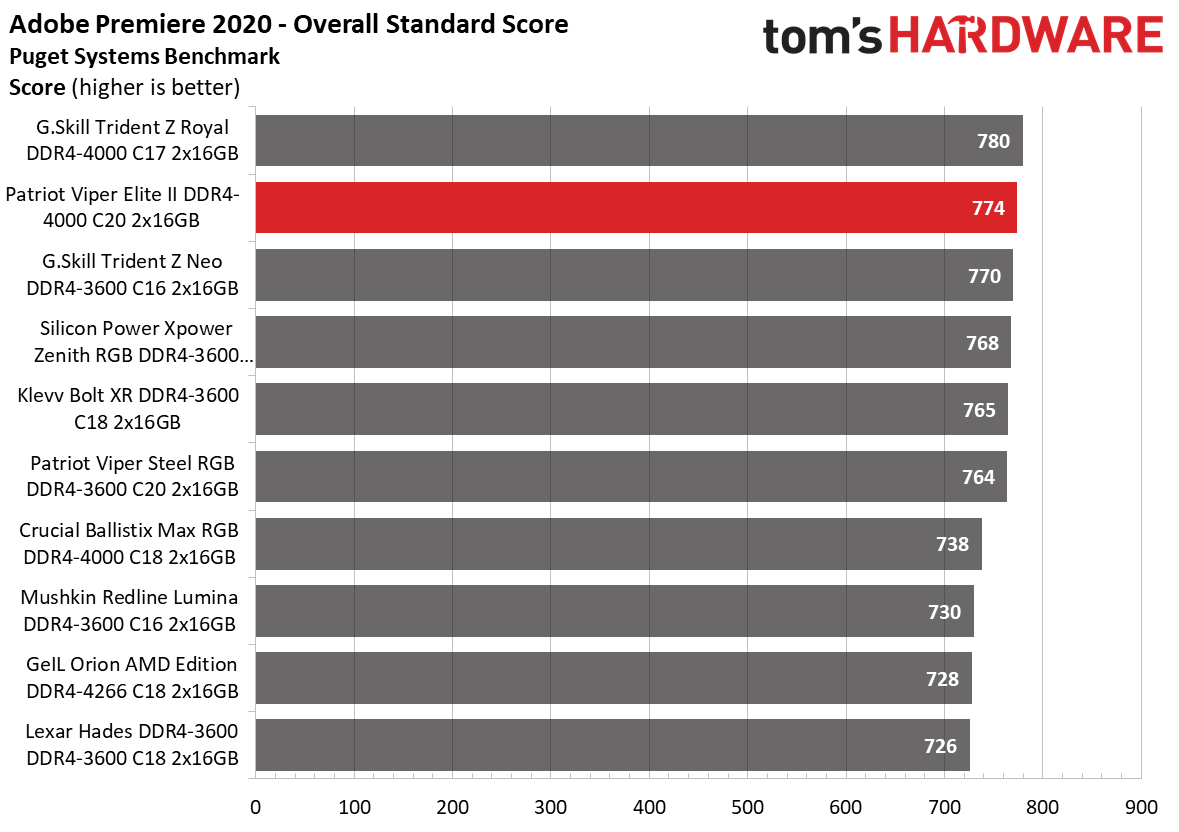
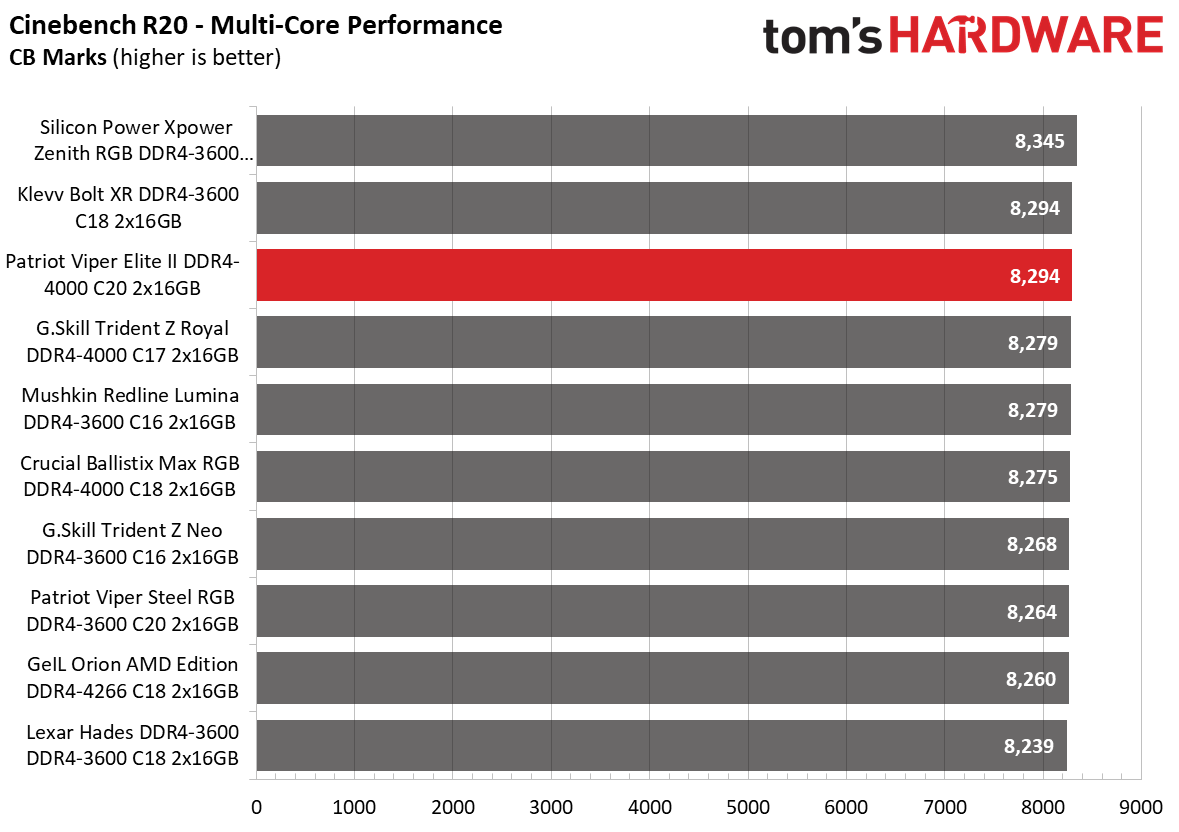
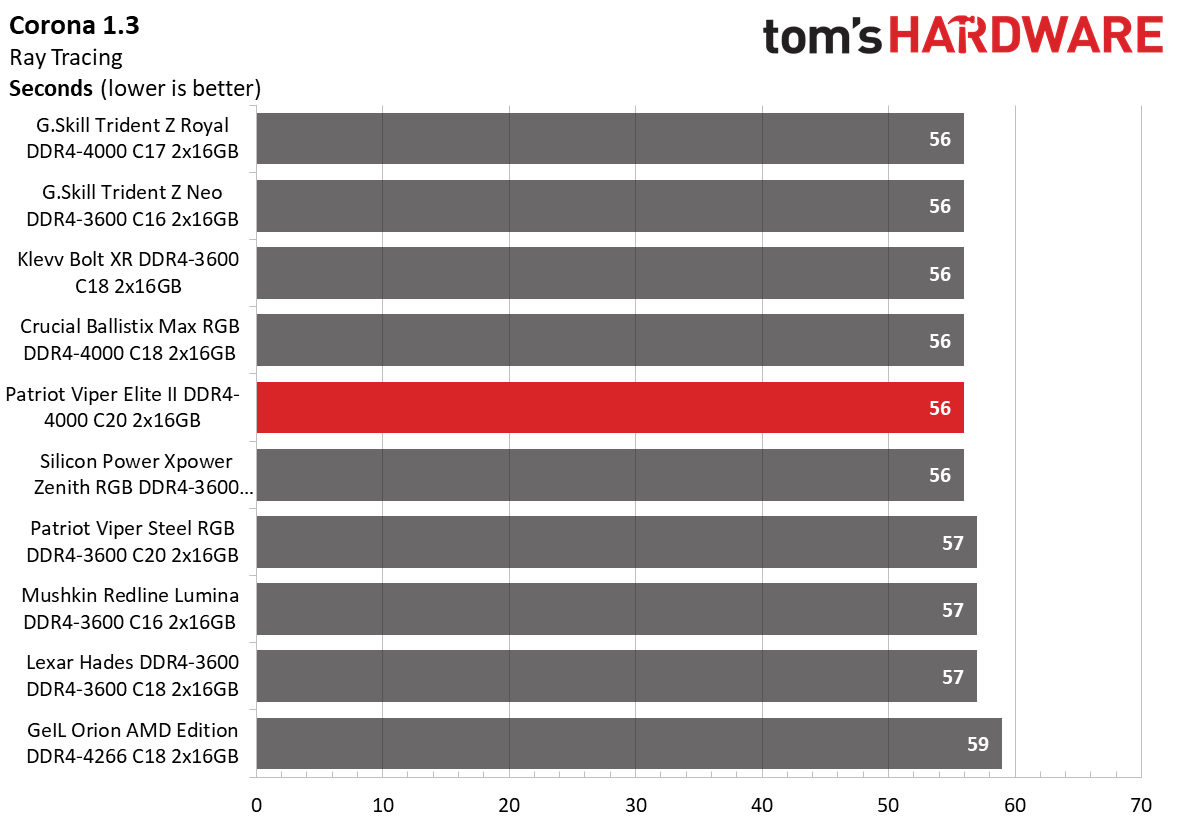
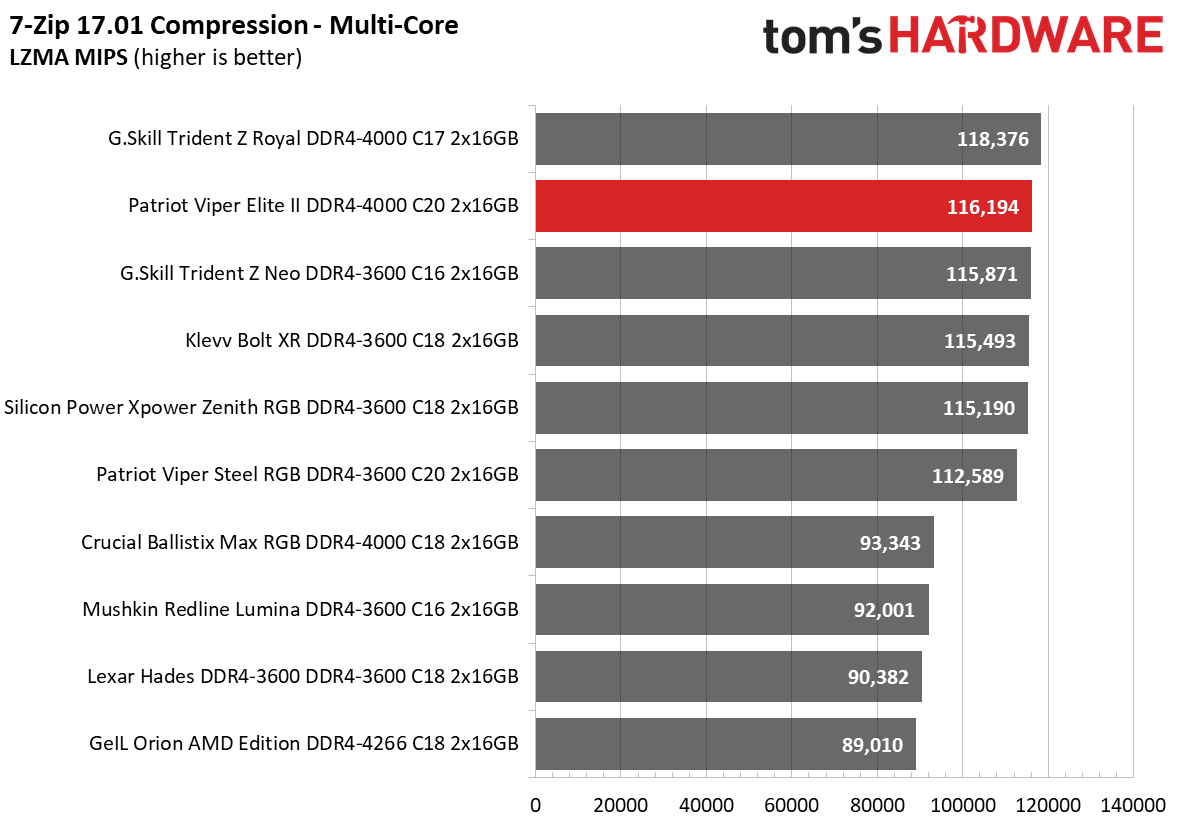
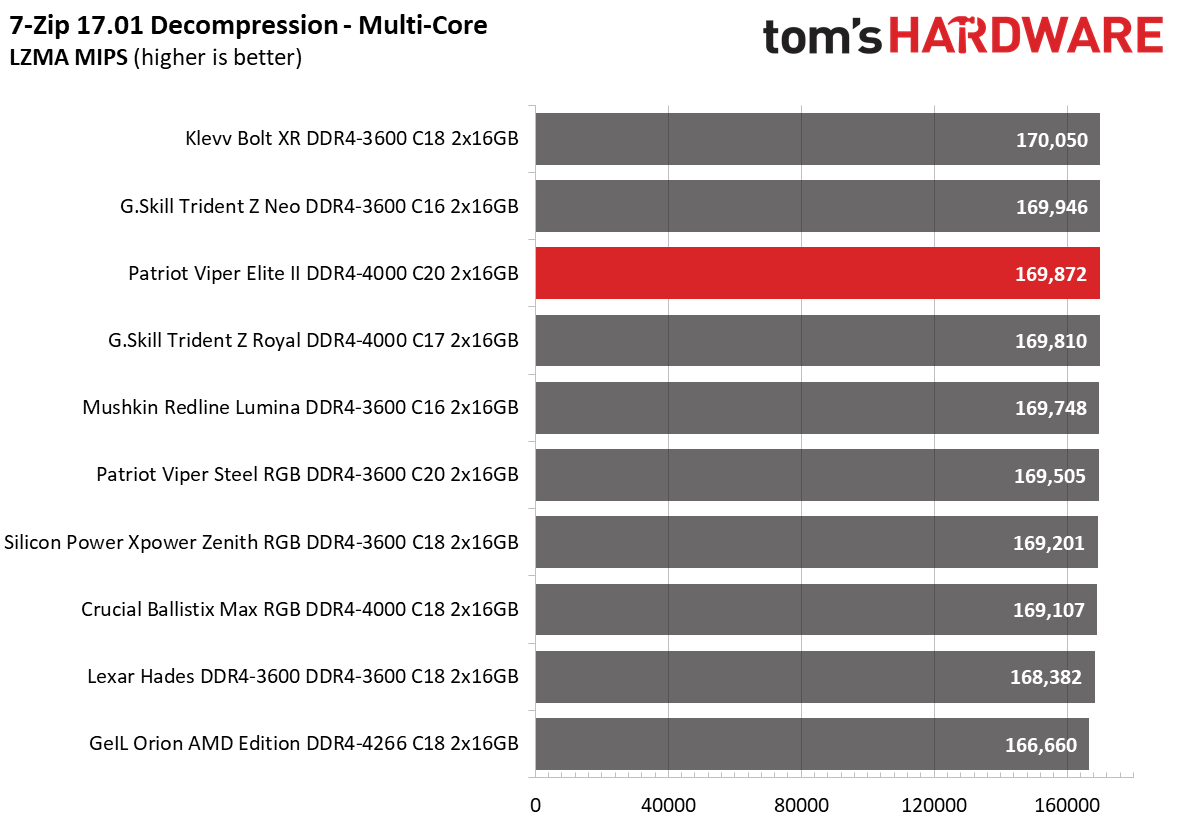
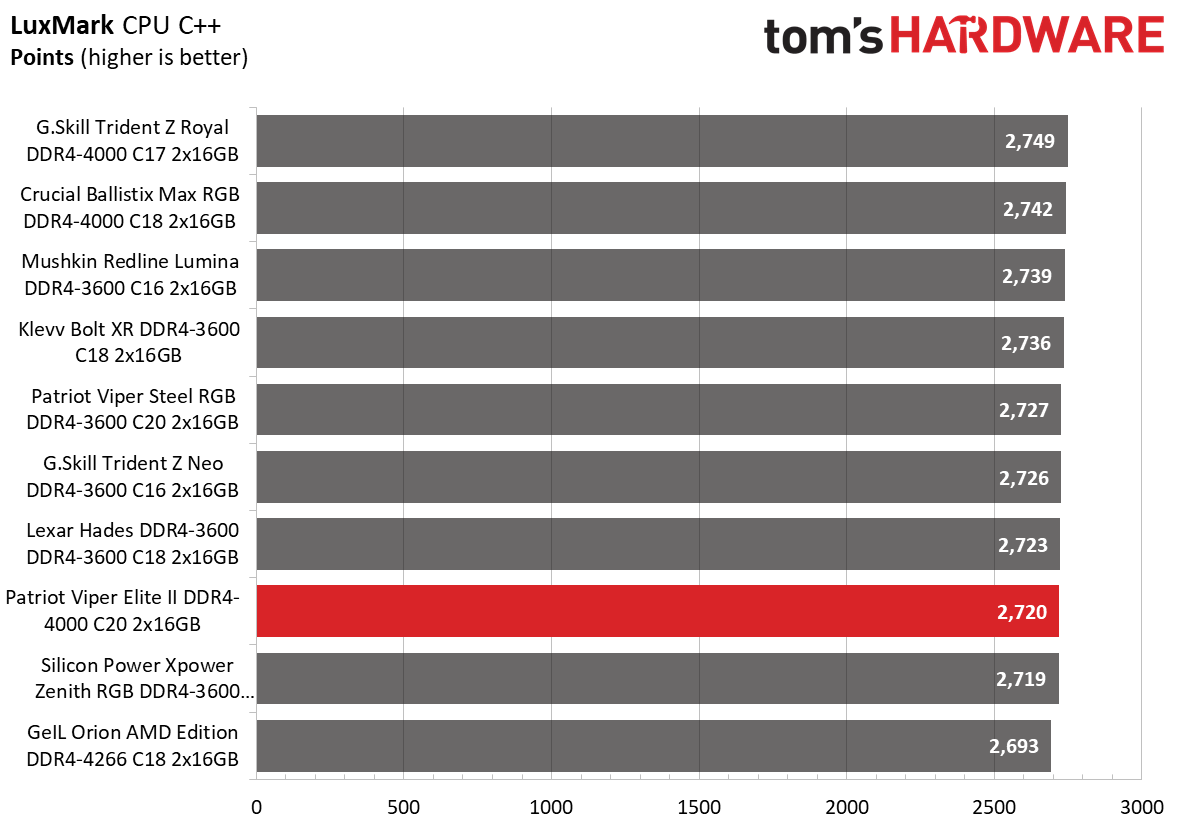
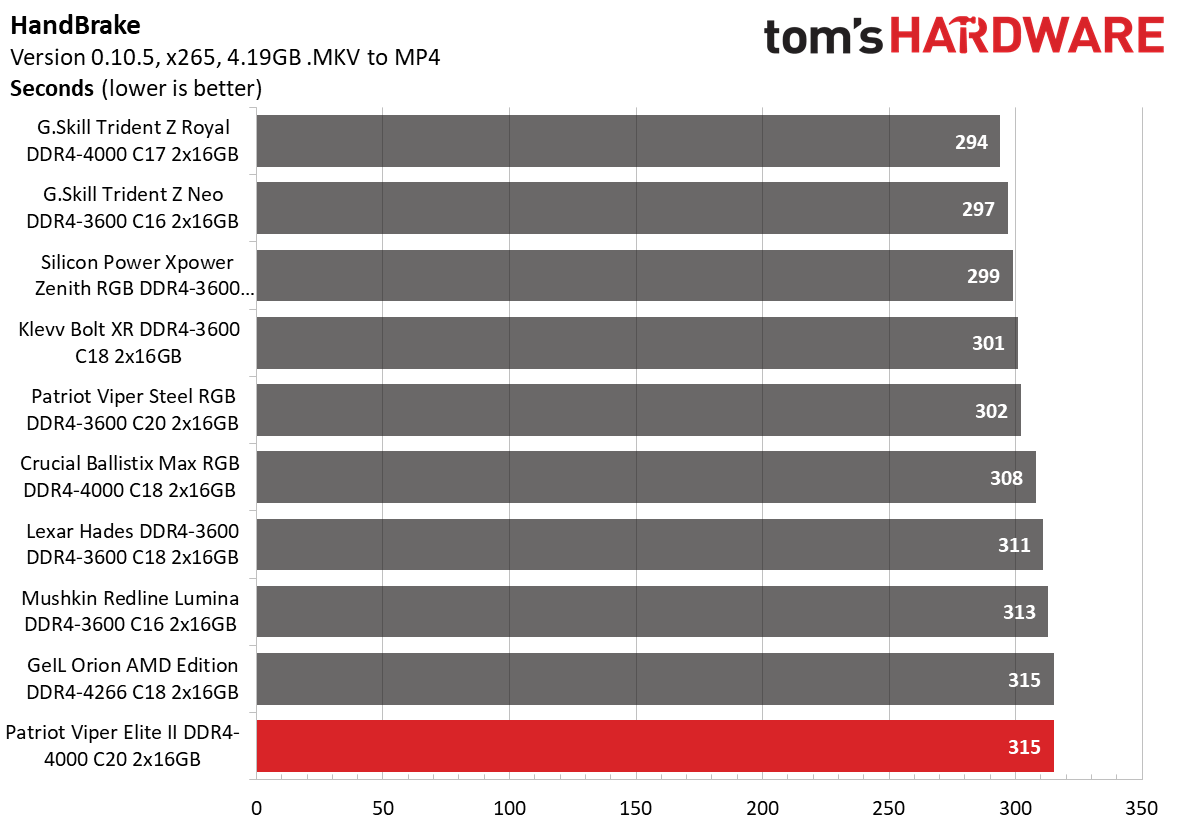
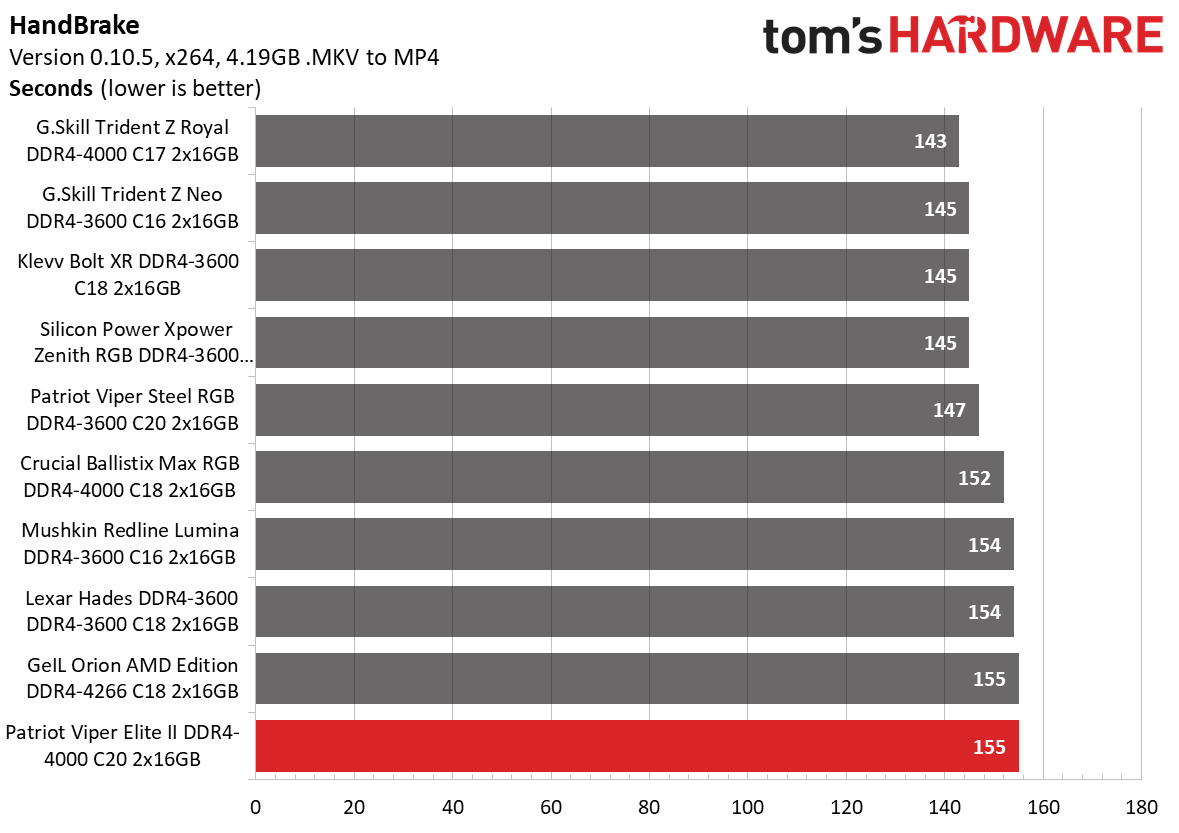
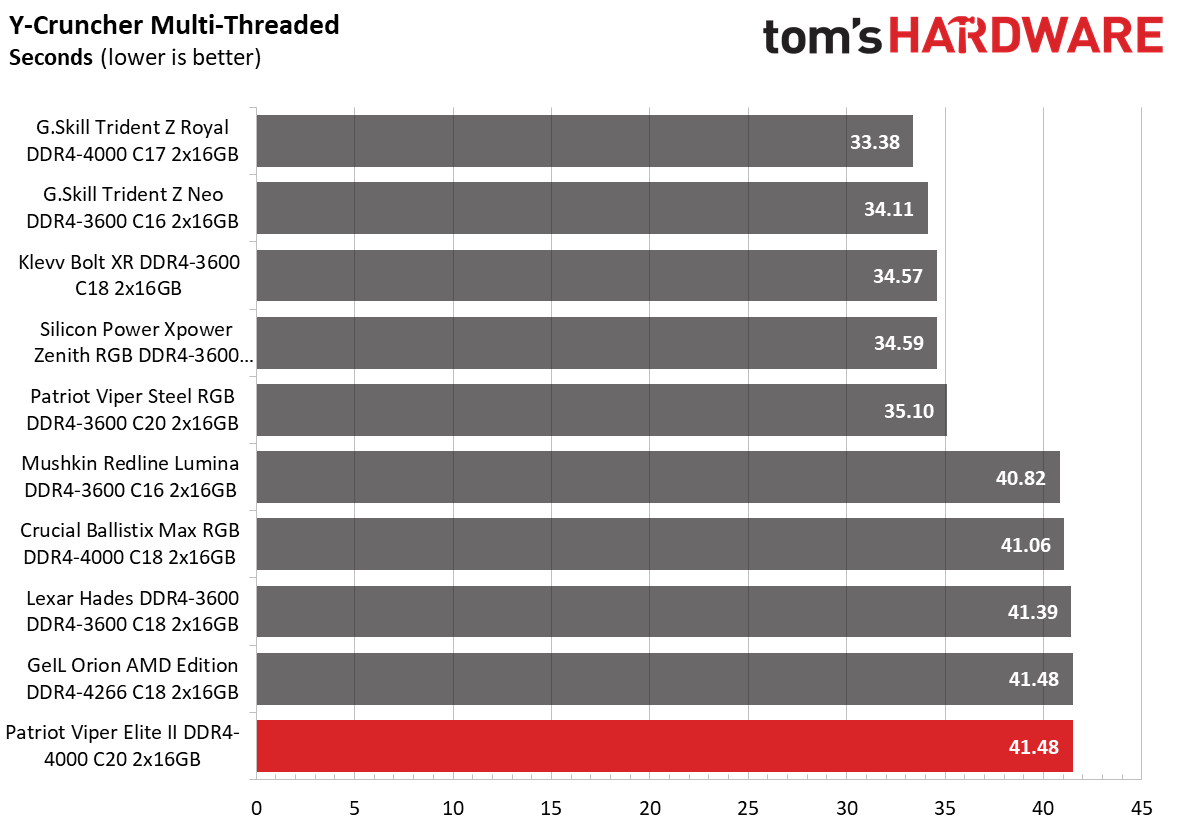
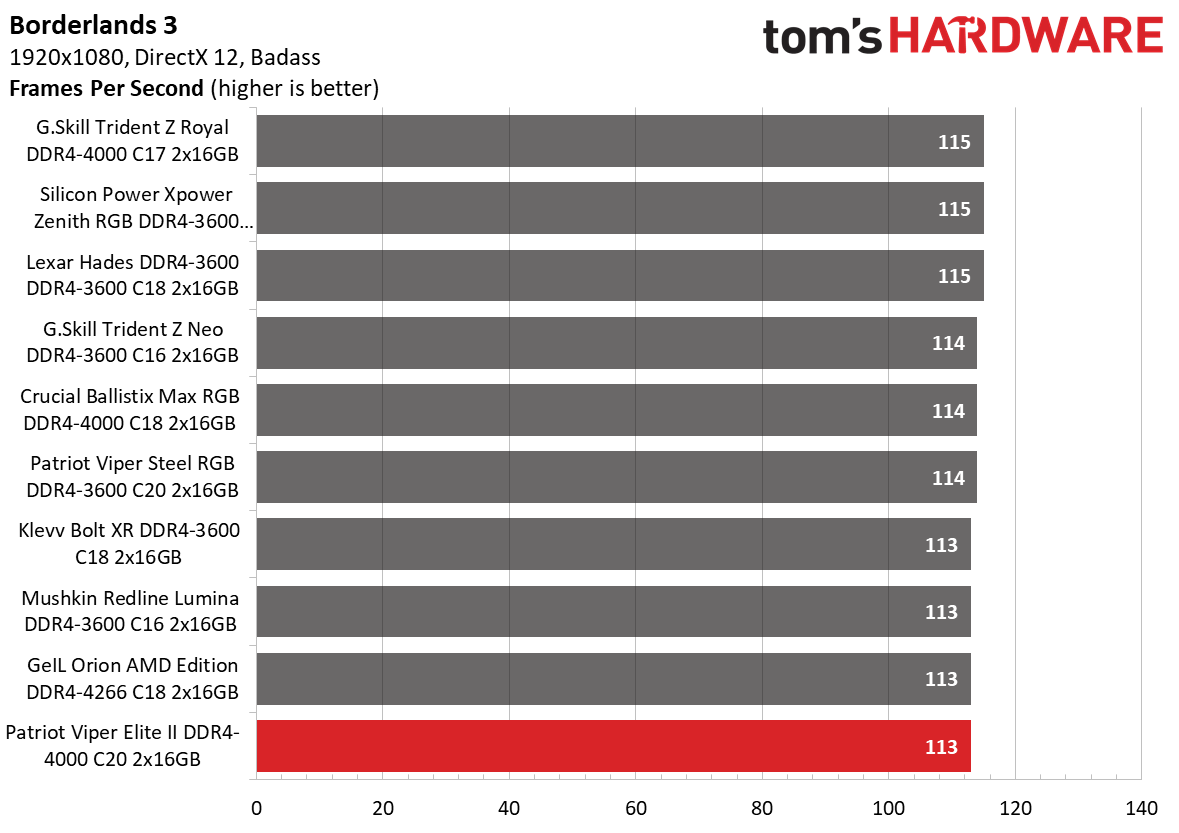
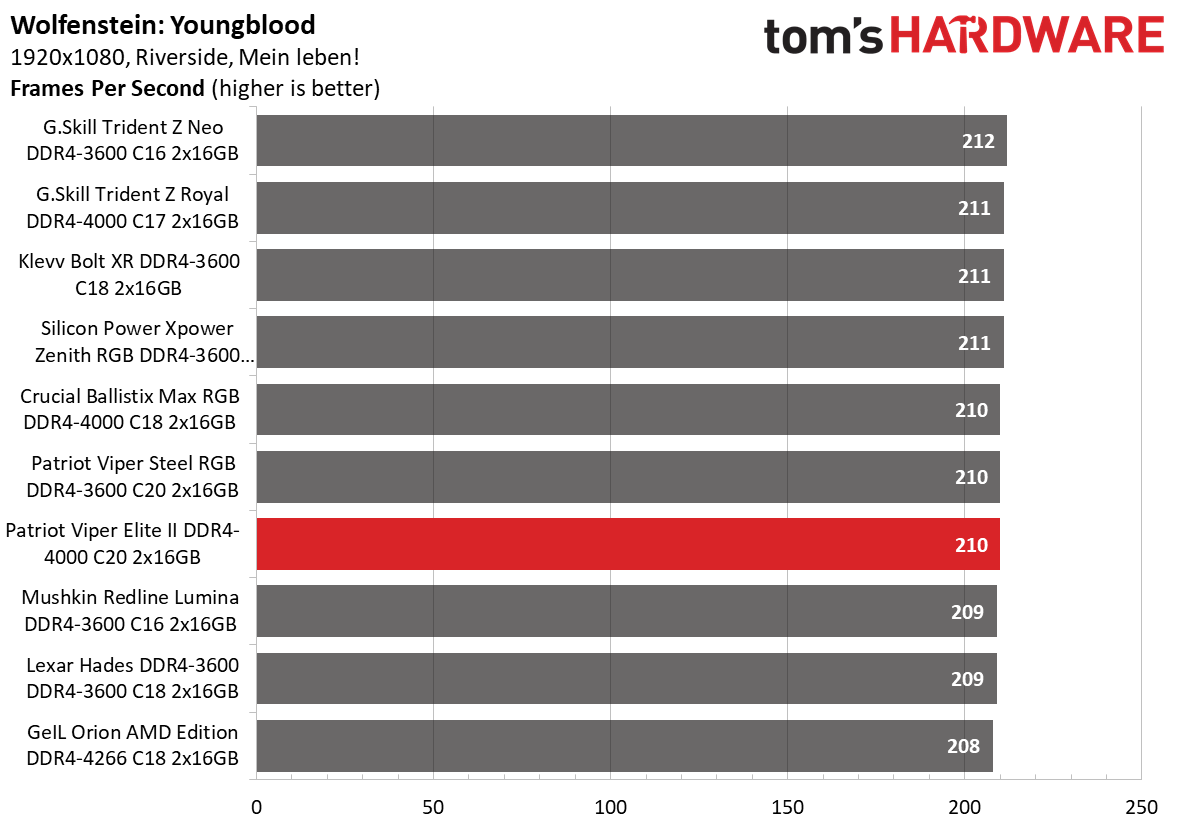
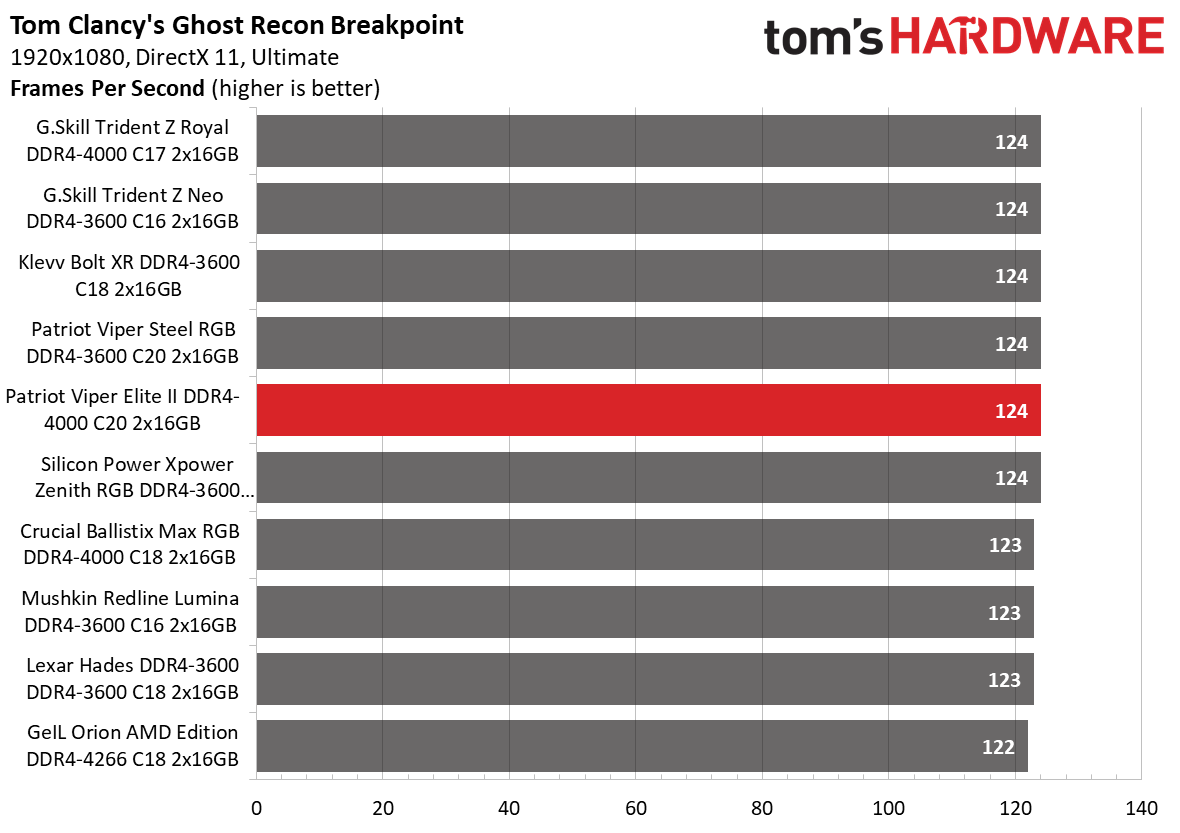
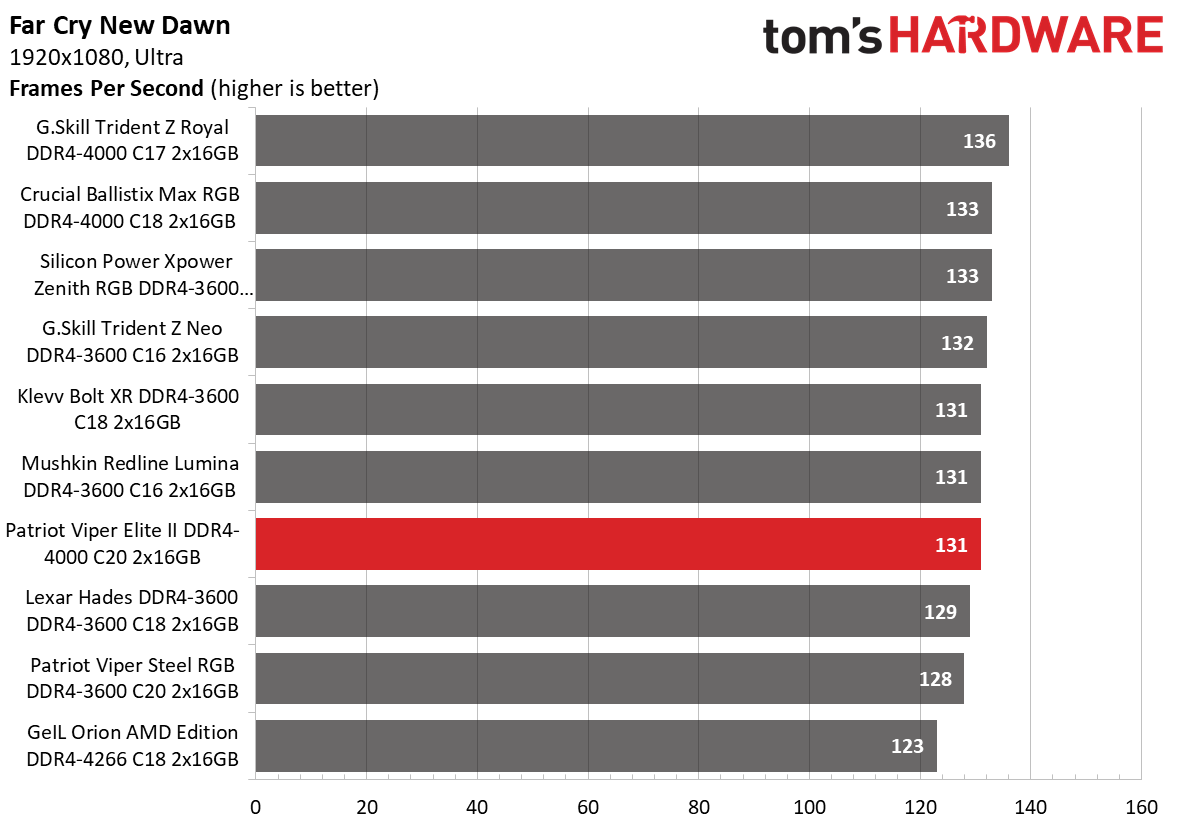
The memory kit's standing in the application benchmarks didn't change when we tested it on the AMD platform. It did move up a position in the gaming performance chart, though. The Viper Elite II put up its strongest show in the Microsoft Office benchmark, notching a 26% margin between it and the slowest memory kit.
Overclocking and Latency Tuning
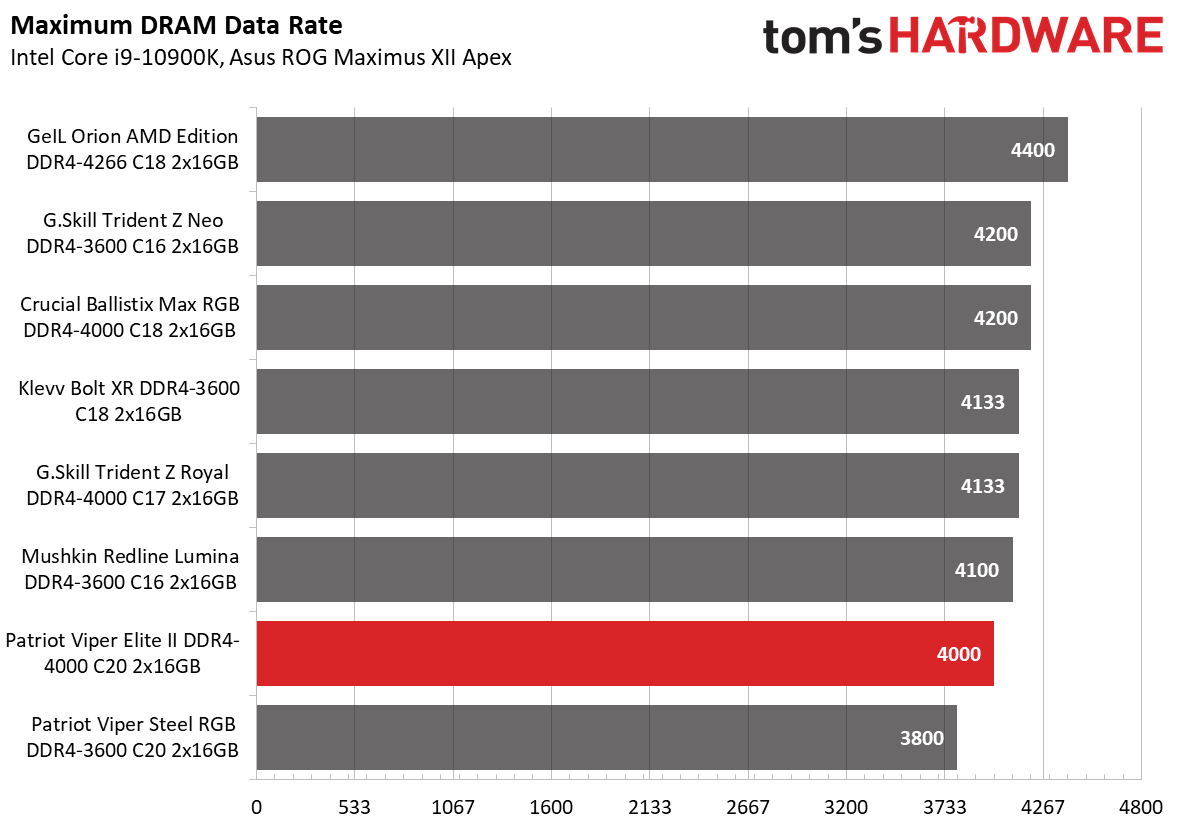
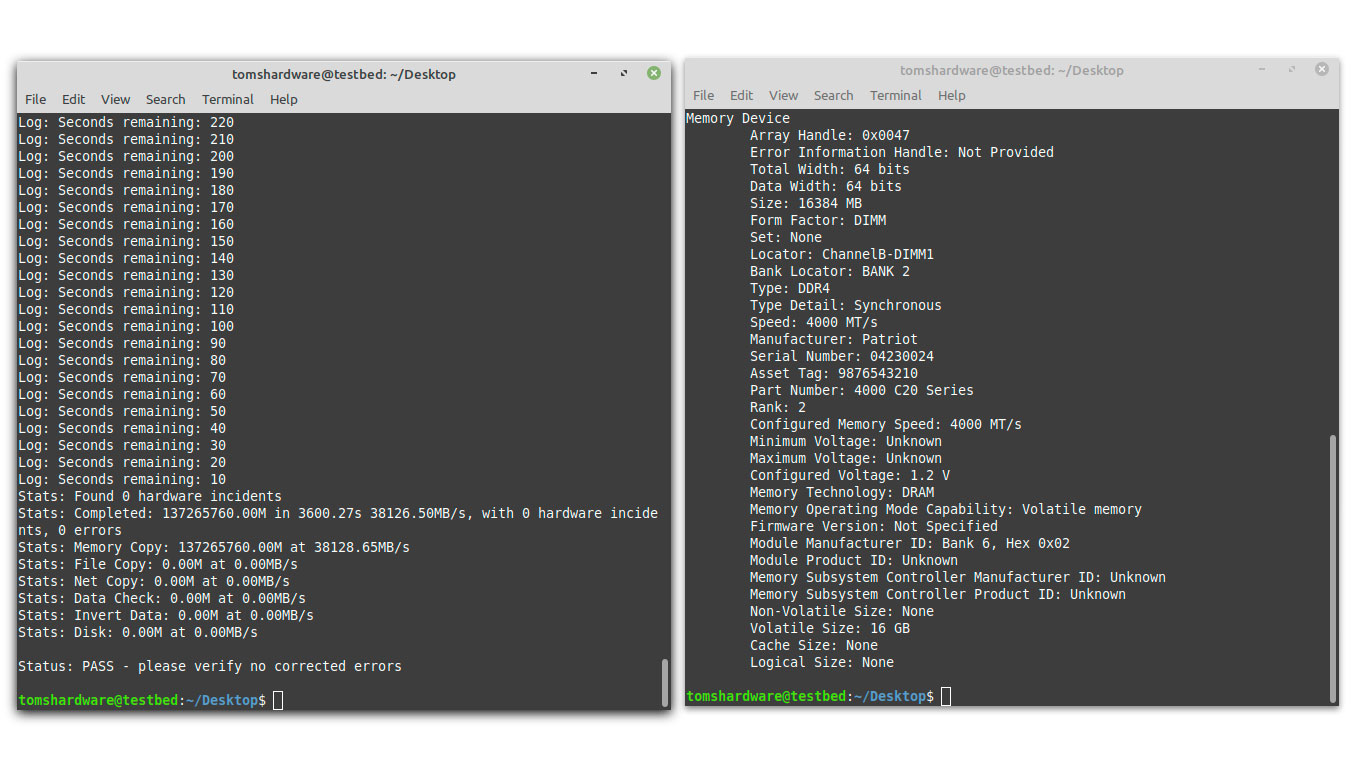
It was impossible to squeeze extra frequency out of the Viper Elite II memory kit. We tried using insane levels of DRAM voltage and loosening the timings to the middle '20s, but to no avail. We're convinced there isn't even the slightest of headroom for overclocking, but it could just be back luck in the silicon lottery. As always with overclocking, your mileage may vary.
Lowest Stable Timings
| Memory Kit | DDR4-4000 (1.45V) | DDR4-4133 (1.50V) | DDR4-4200 (1.45V) |
|---|---|---|---|
| Crucial Ballistix Max RGB DDR4-4000 C18 | 16-19-19-39 (2T) | N/A | 20-20-20-40 (2T) |
| G.Skill Trident Z Royal DDR4-4000 C17 | 15-16-16-36 (2T) | 18-19-19-39 (2T) | N/A |
| Patriot Viper Elite II DDR4-4000 C20 | 18-25-25-45 (2T) | N/A | N/A |
We had better luck tightening the primary timings for the Viper Elite II at DDR4-4000. A small voltage bump to 1.45V sufficed to reduce the timings from 20-26-26-46 to 18-25-25-45. Those are the borderline values, though, since the memory kit wouldn't go any lower.
Bottom Line
The Viper Elite II DDR4-4000 C20 has an appealing design and acceptable price tag, but average performance. Our tests showed that the memory kit's loose timings didn't allow it to stand out in any meaningful way. DDR4-4000 at CL20 is pretty hard to swallow, considering it's at the bottom of the barrel in the DDR4-4000 category.
Patriot's memory kit currently retails for $195.99. It's not the worst pricing on the market for a DDR4-4000 memory kit, but it is on the more expensive side, especially considering there shouldn't be an RGB tax. There are more compelling options in the Viper Elite II series, but this DDR4-4000 C20 memory kit simply doesn't offer the best bang for the buck.

Zhiye Liu is a news editor, memory reviewer, and SSD tester at Tom’s Hardware. Although he loves everything that’s hardware, he has a soft spot for CPUs, GPUs, and RAM.
